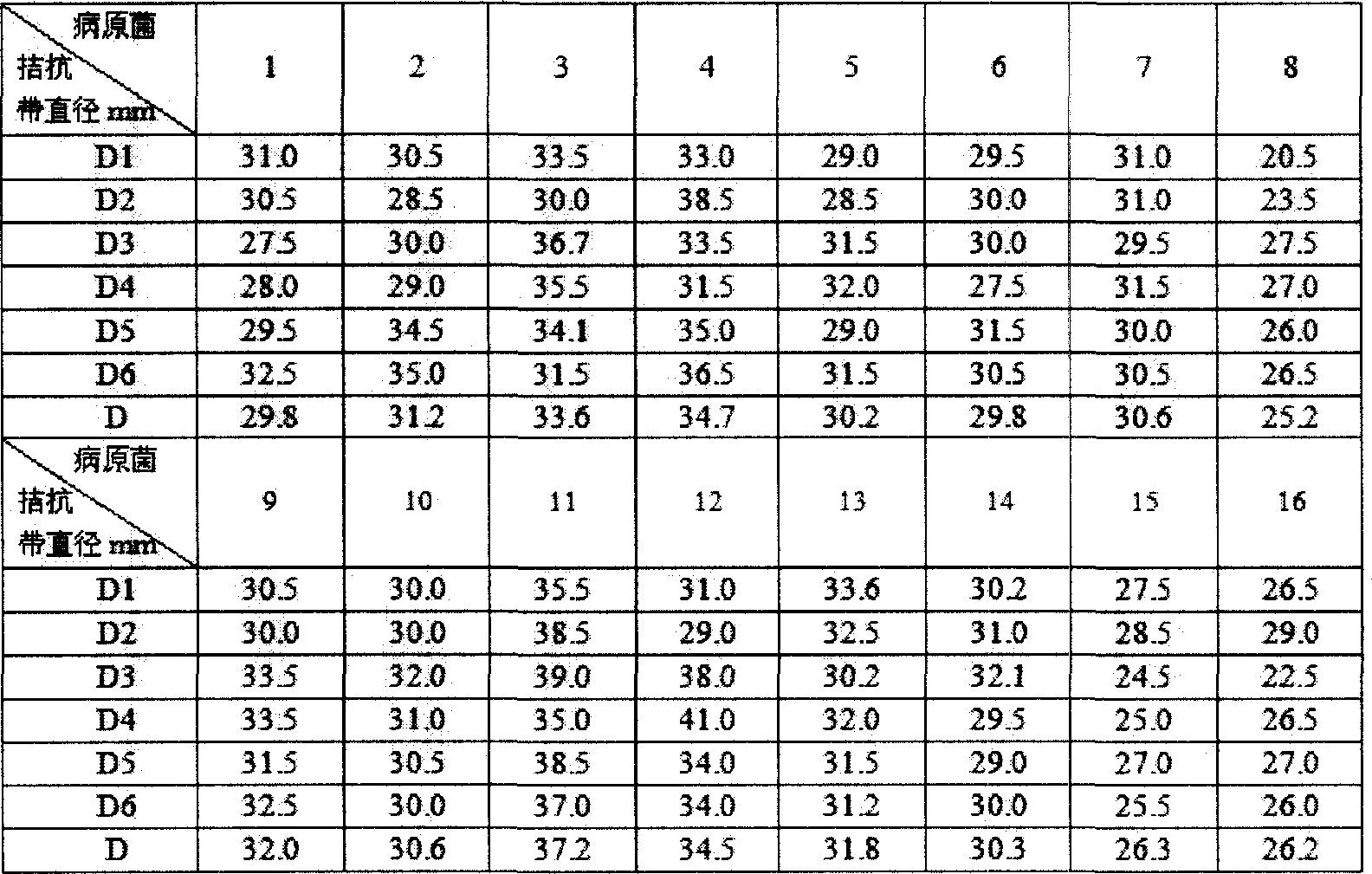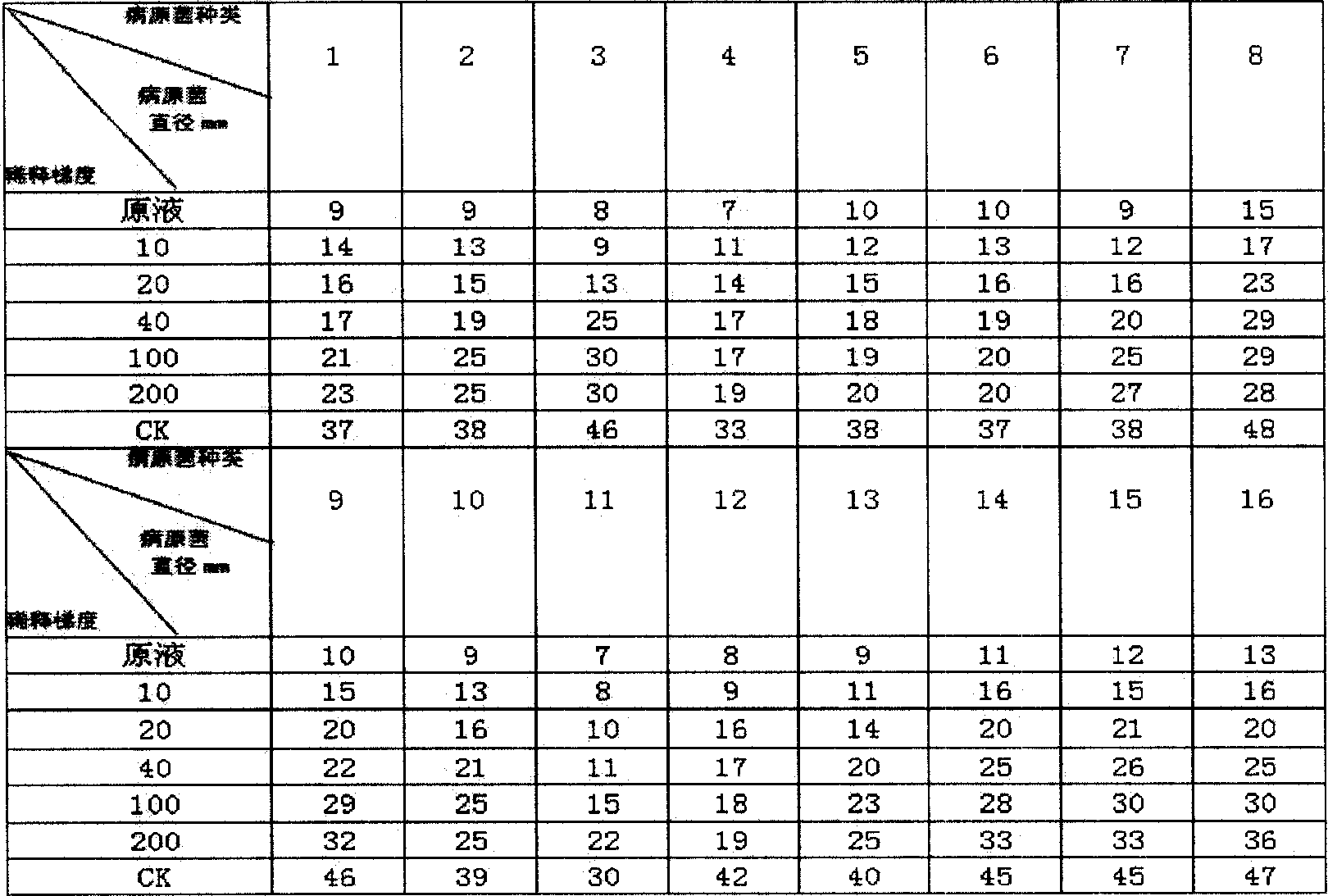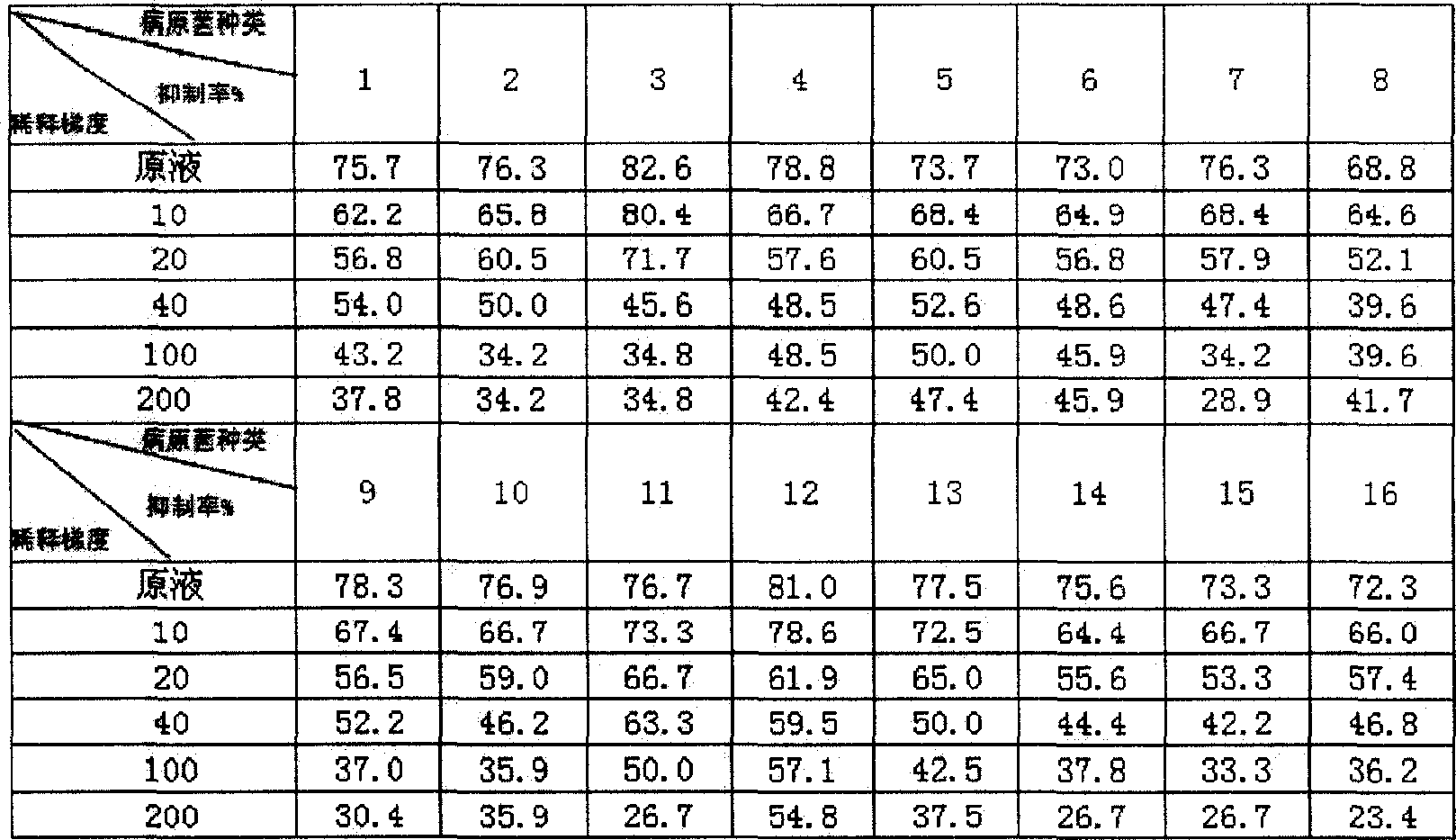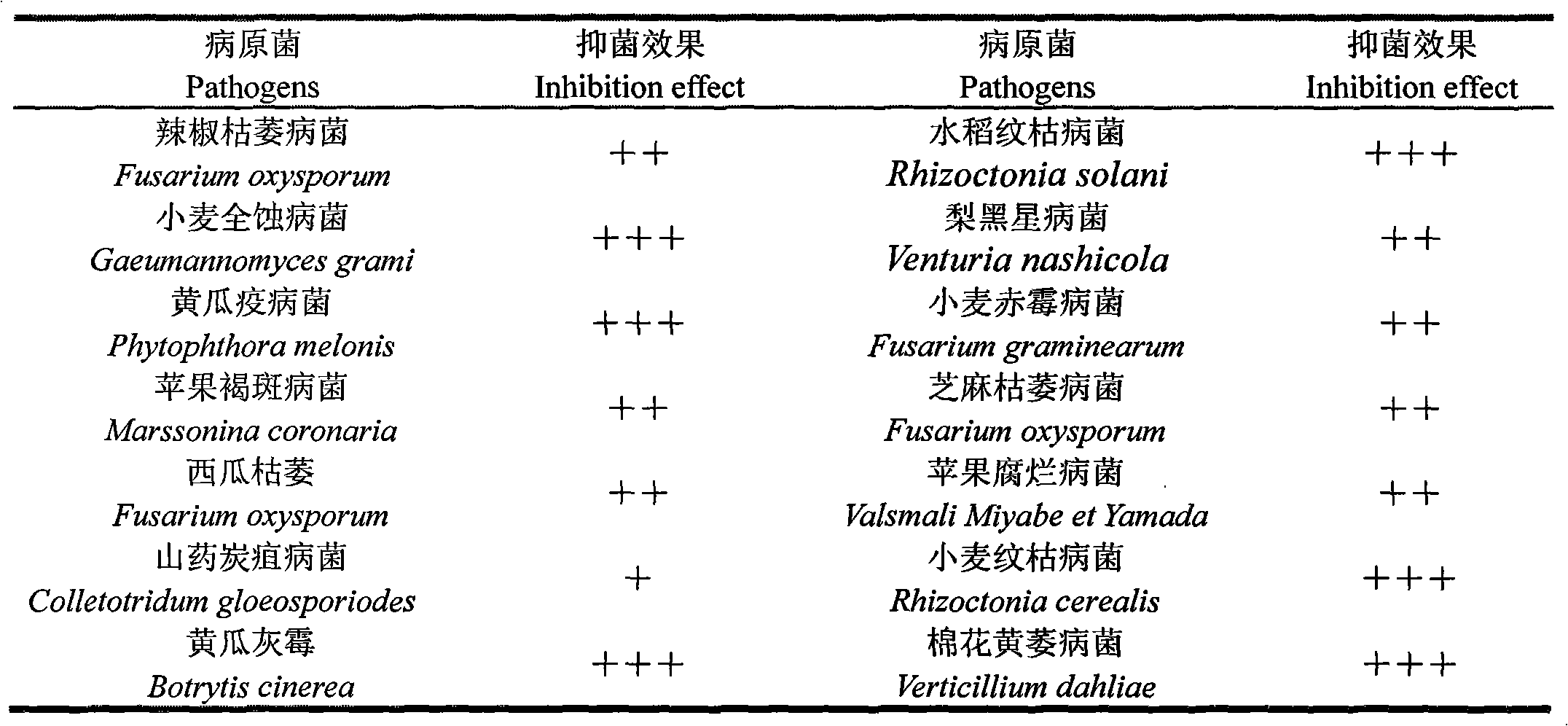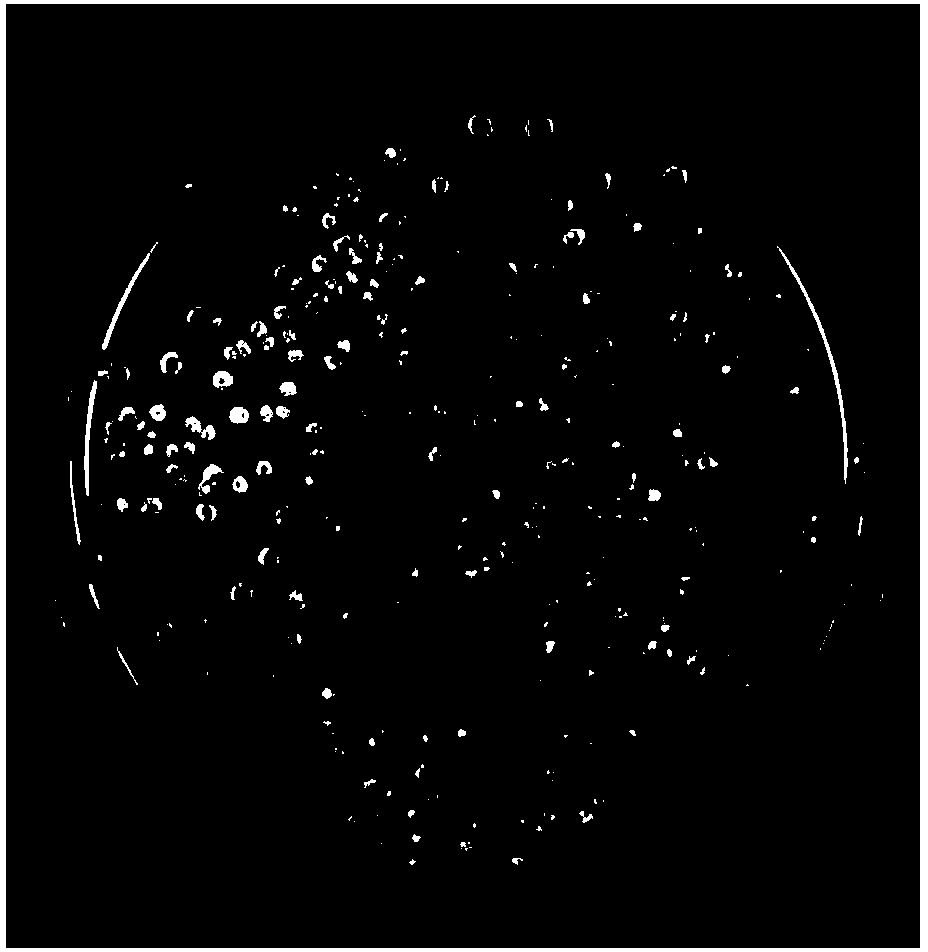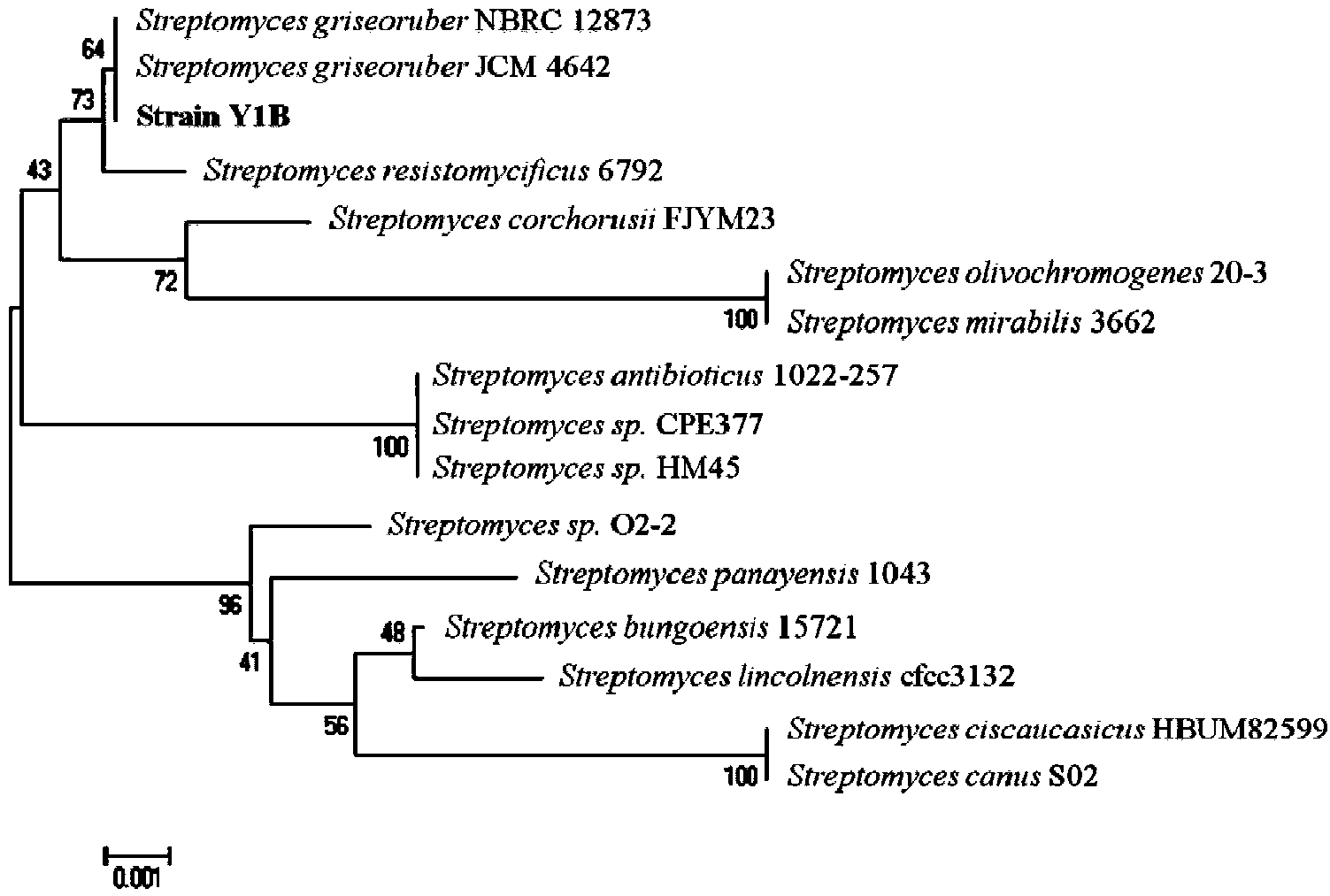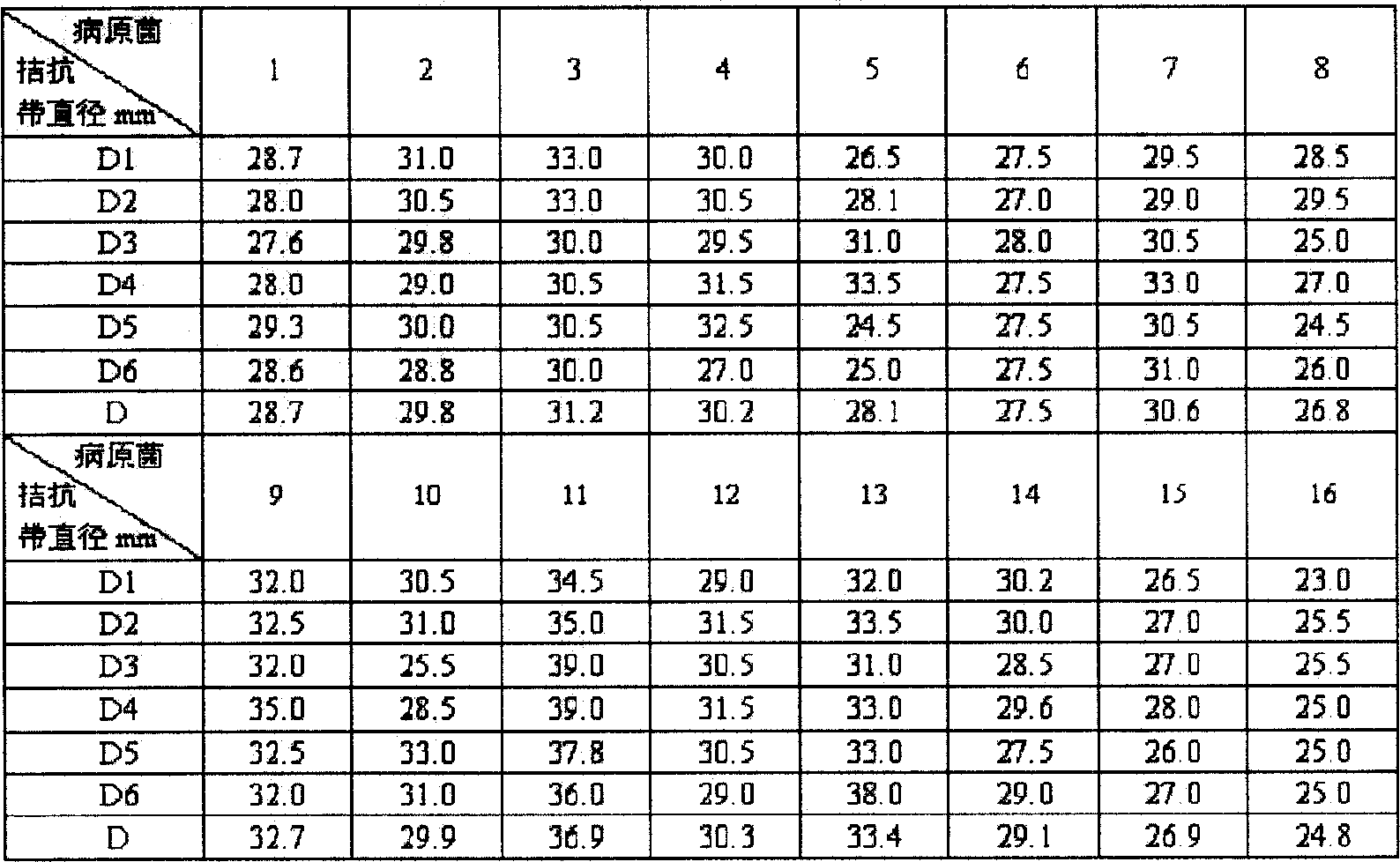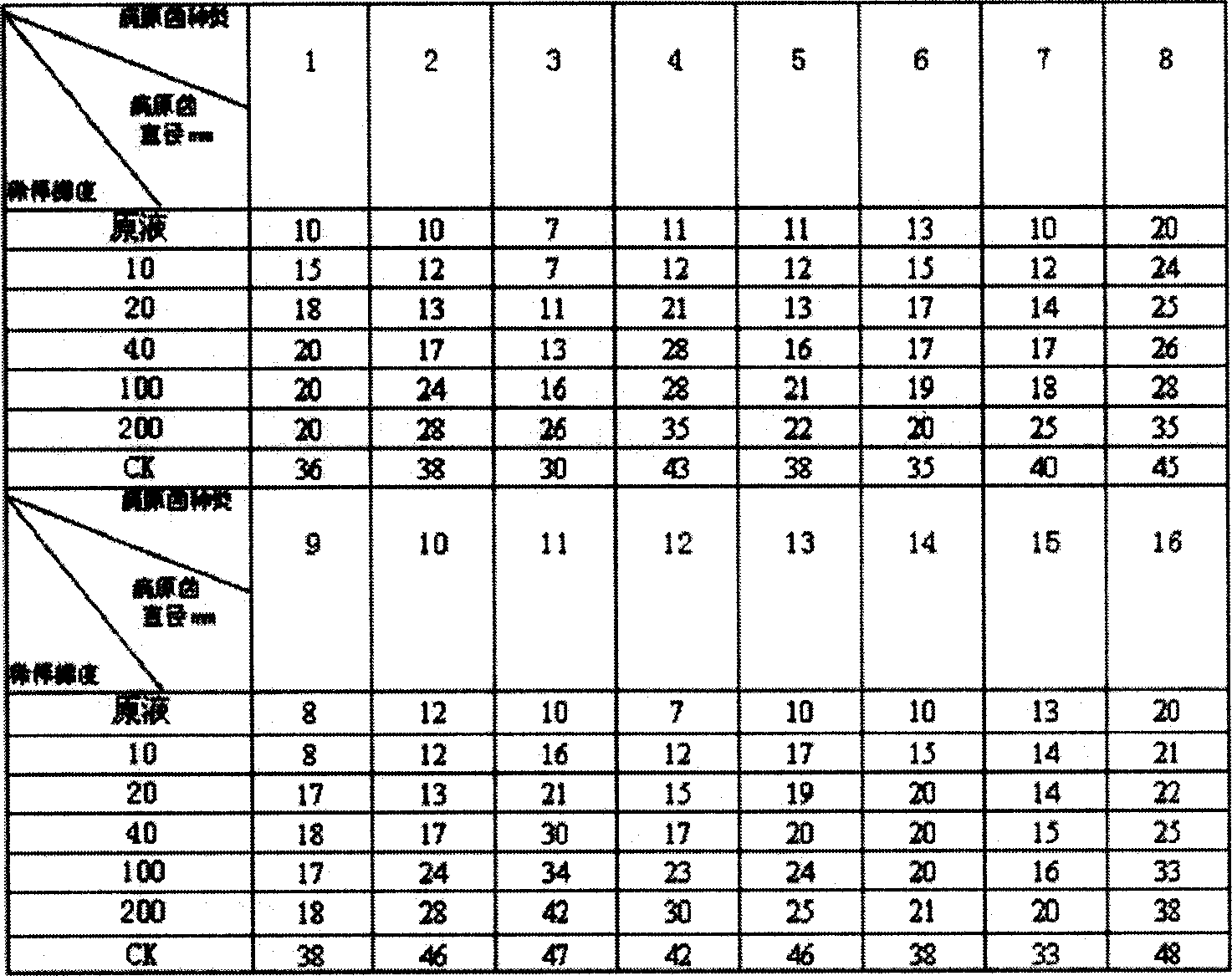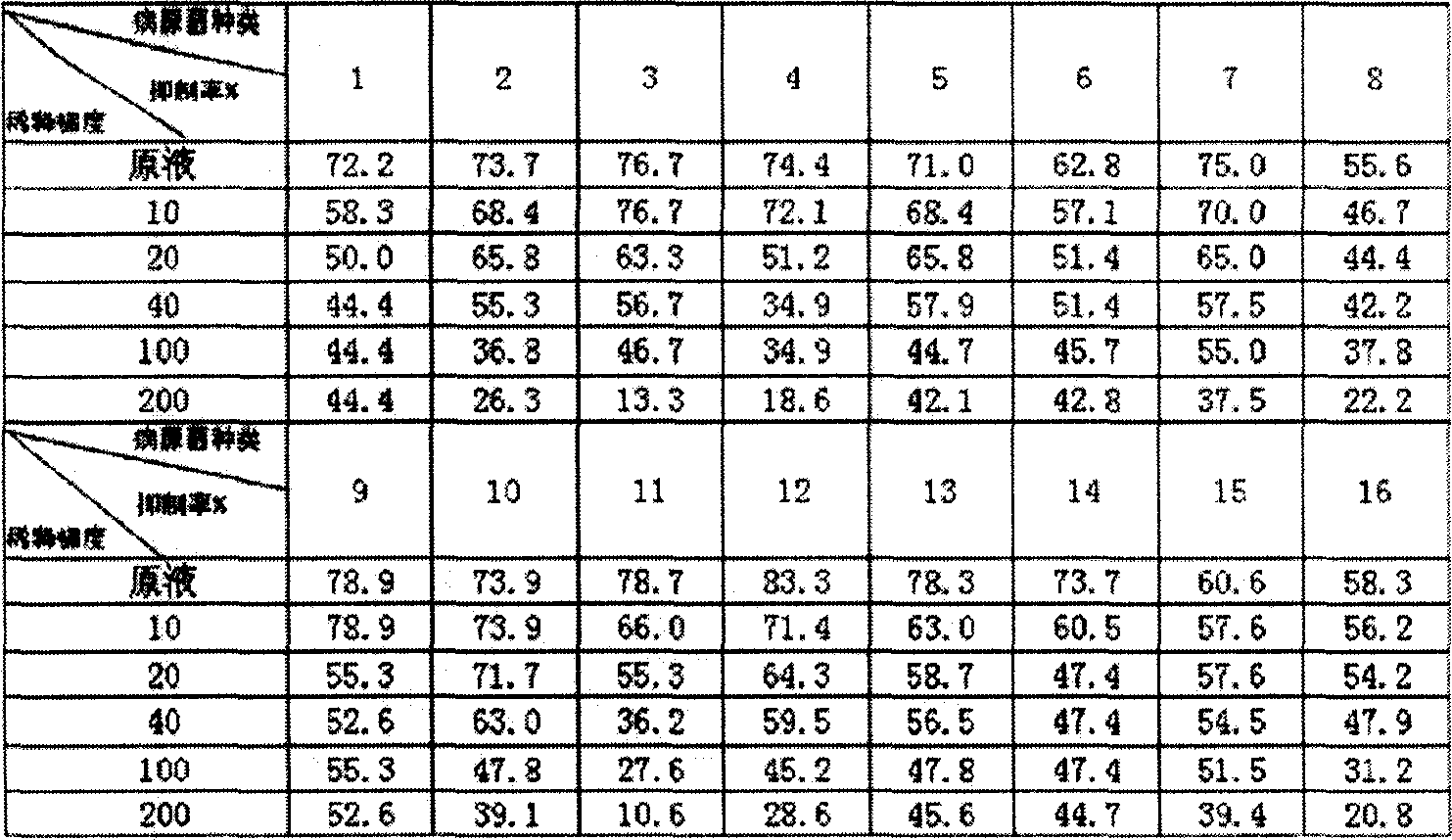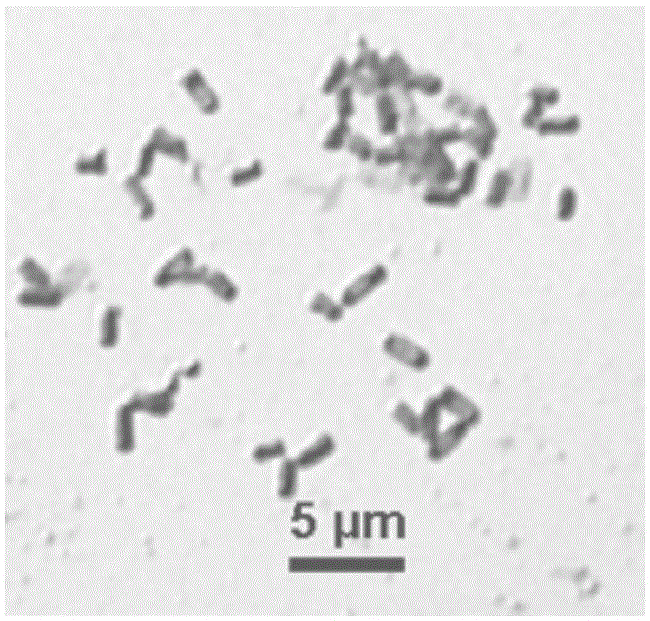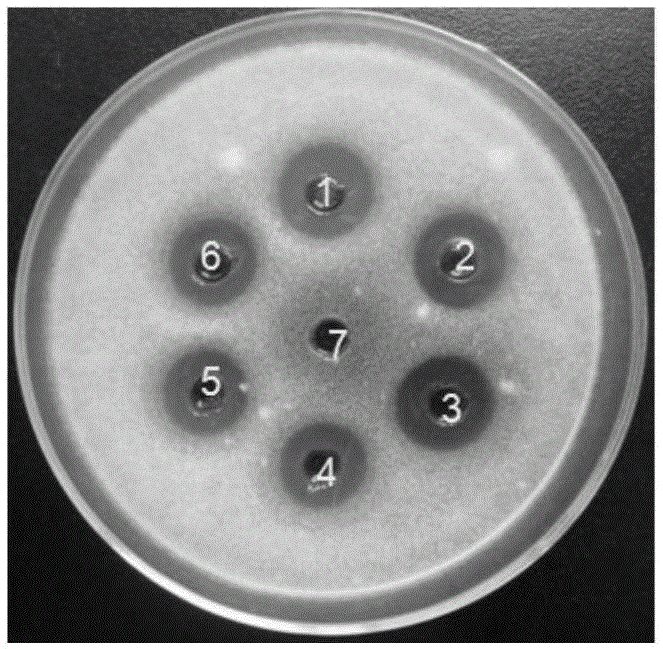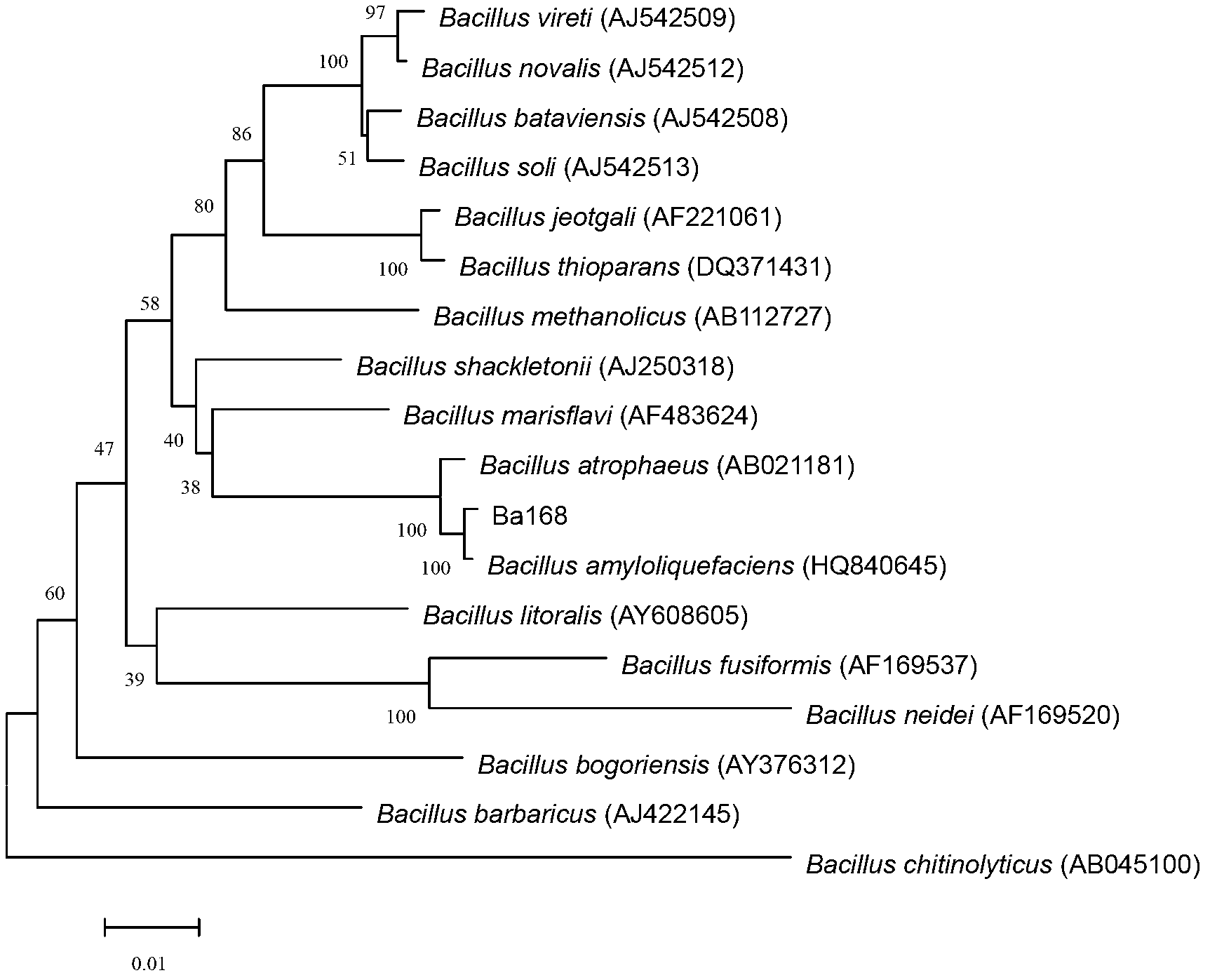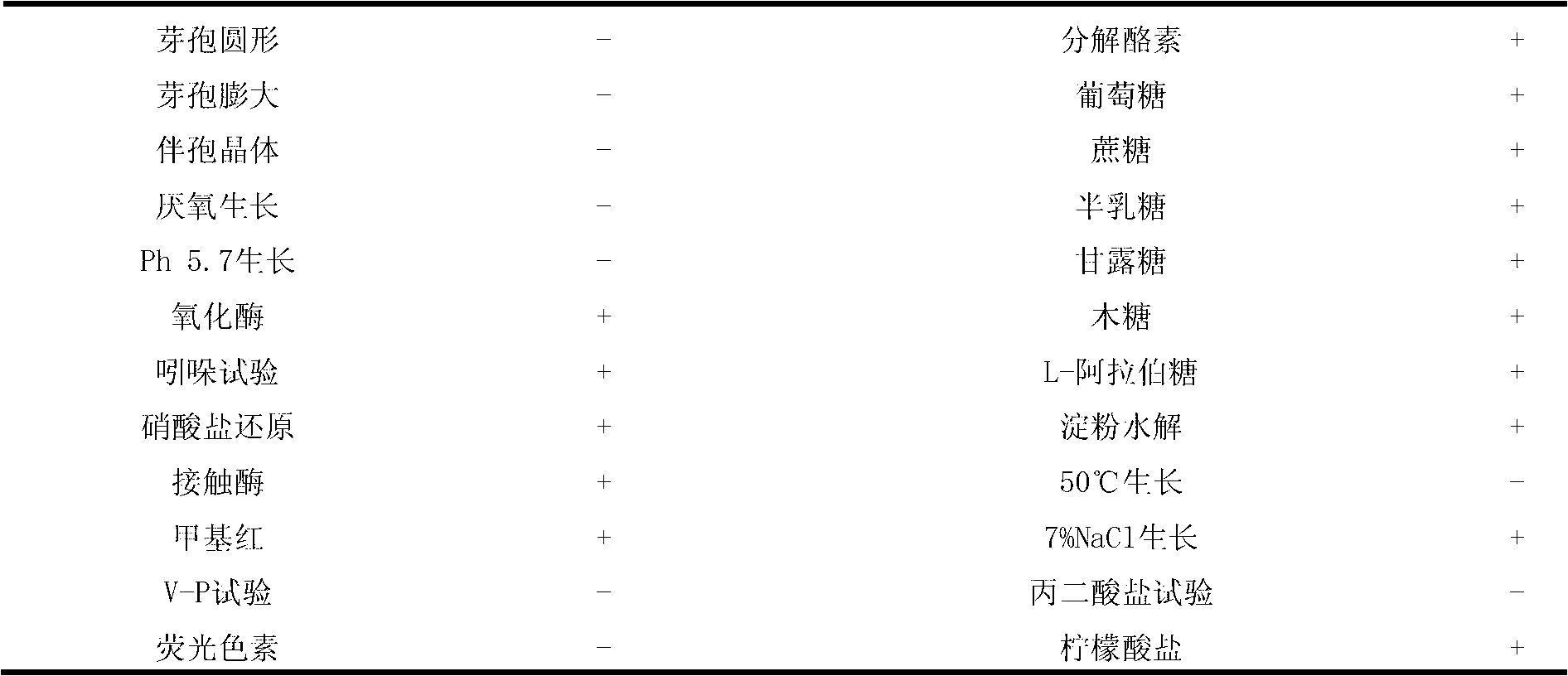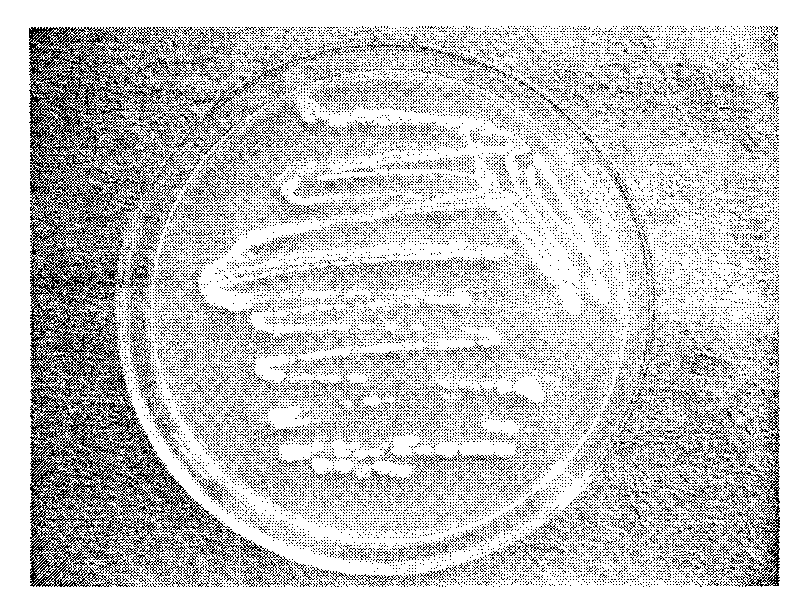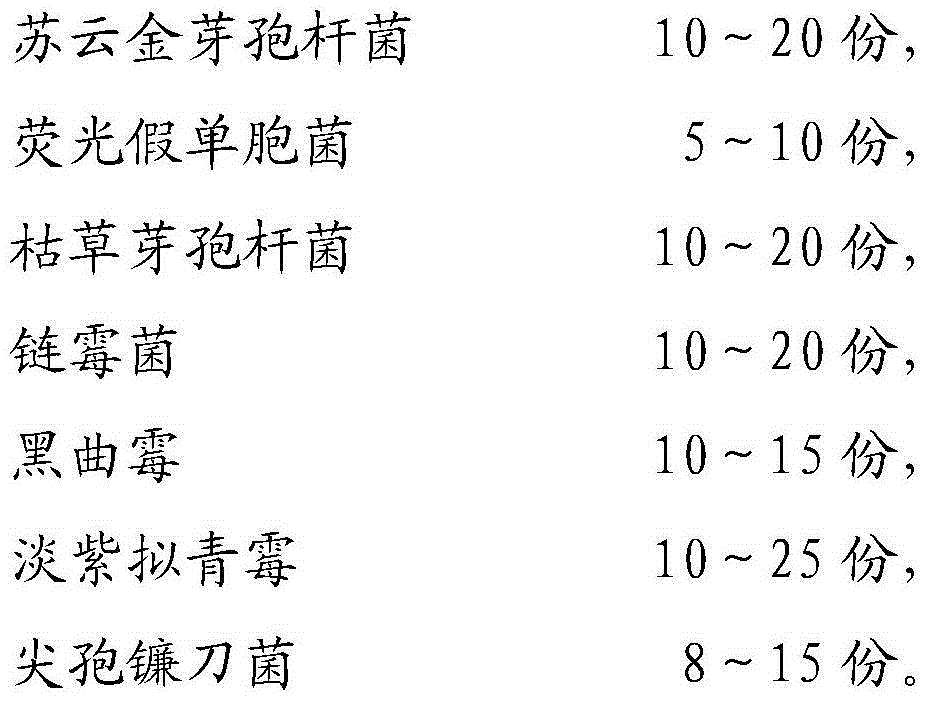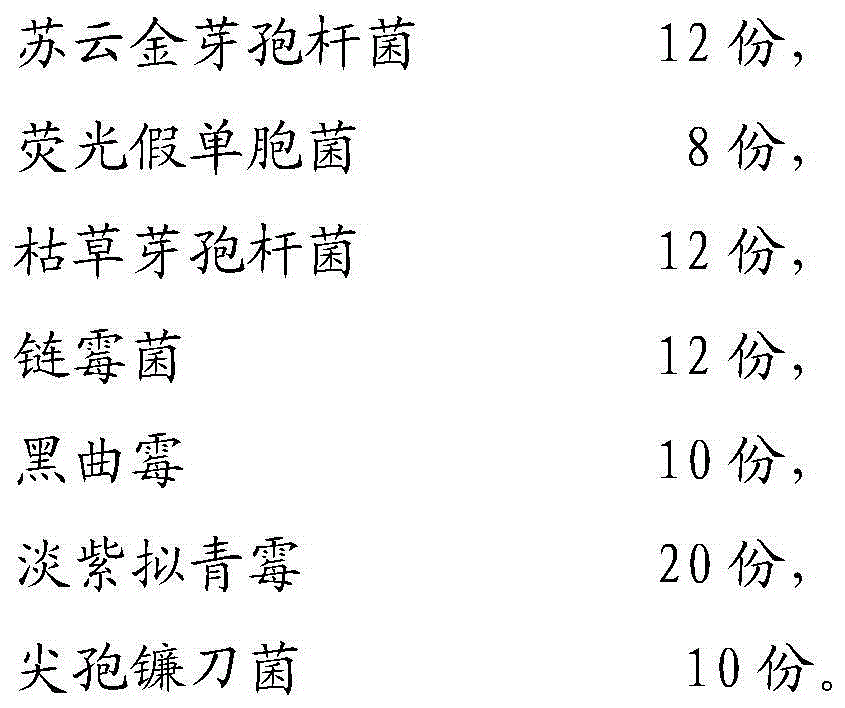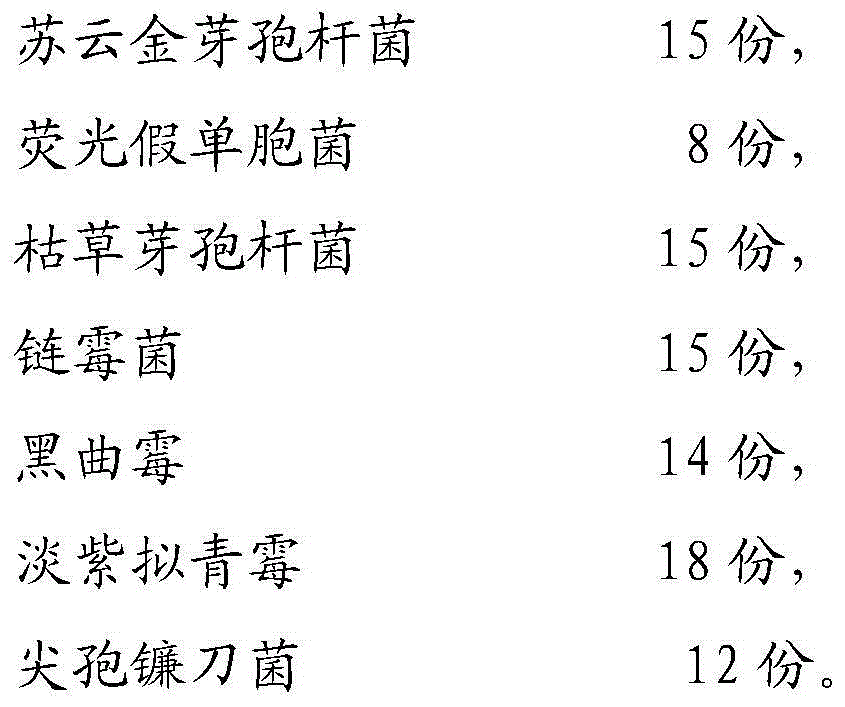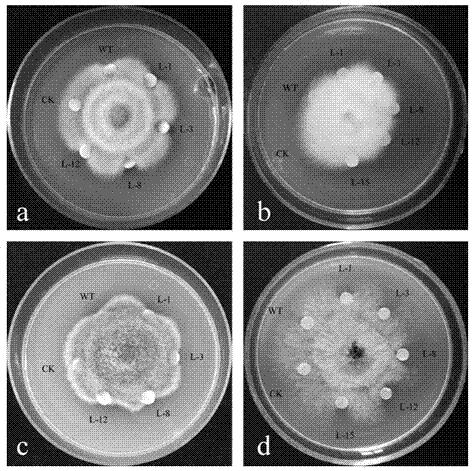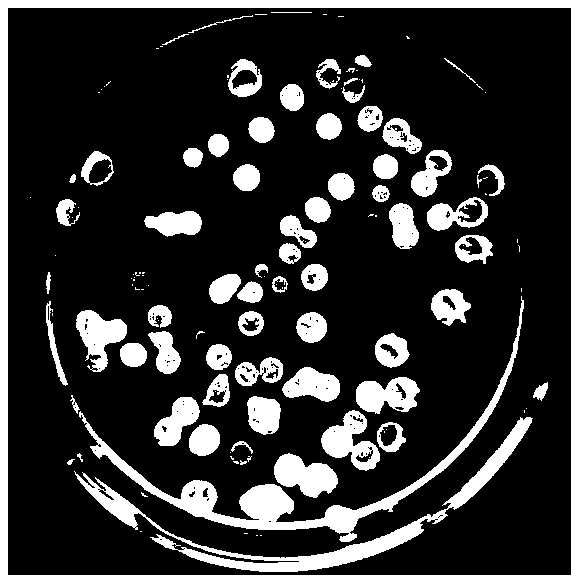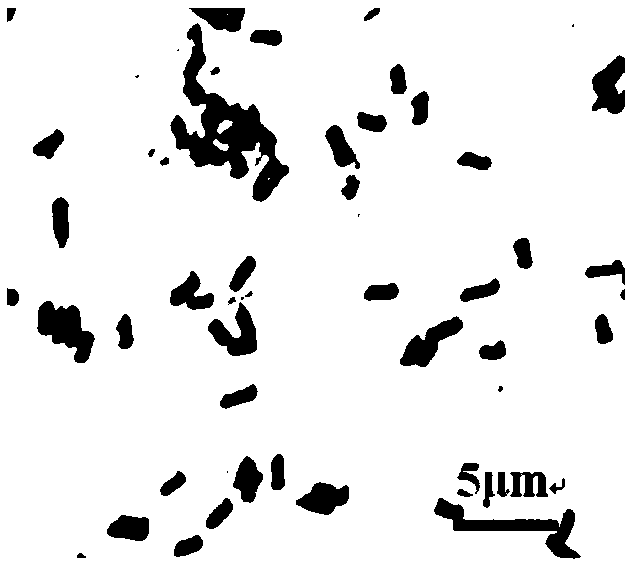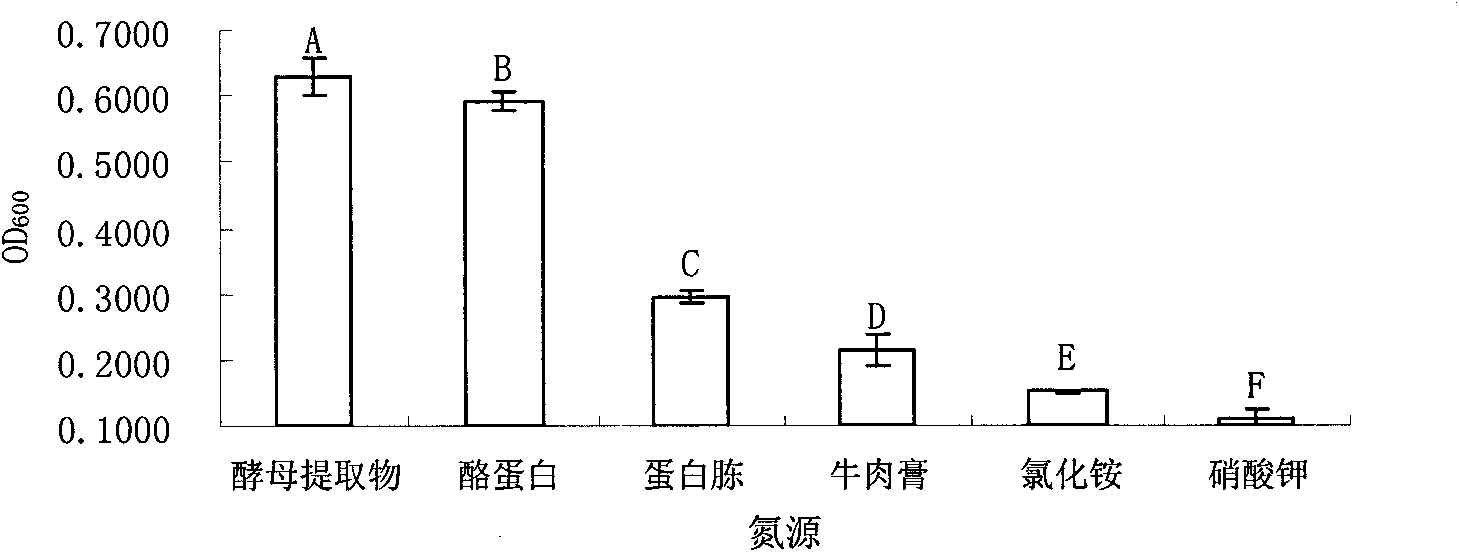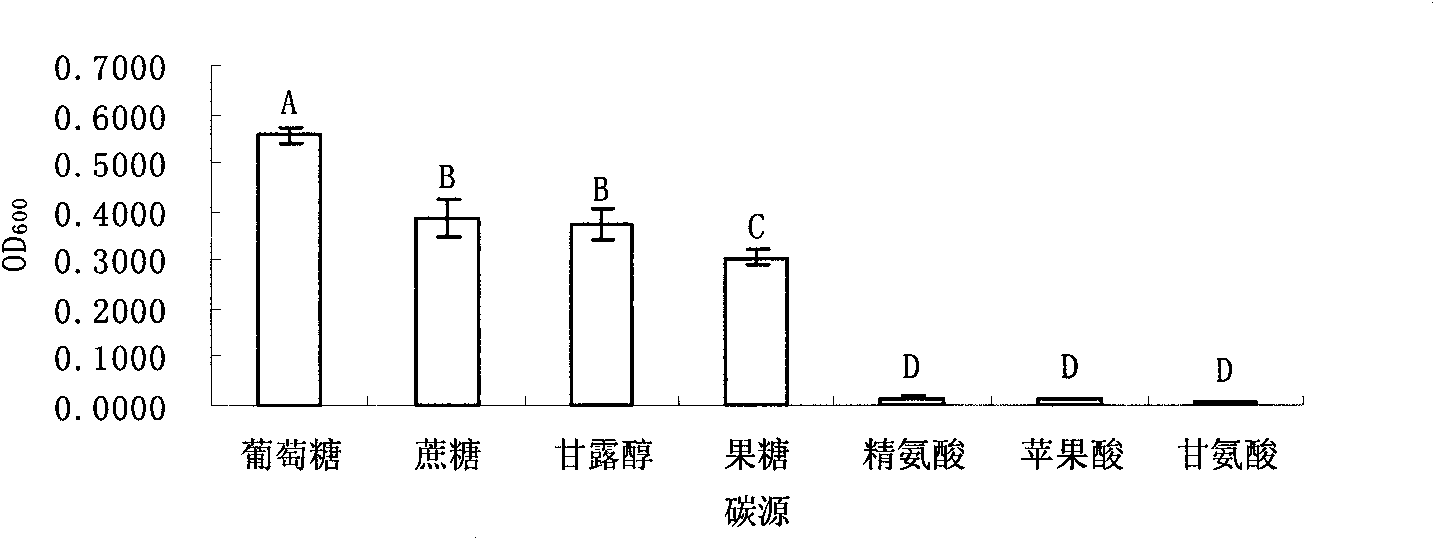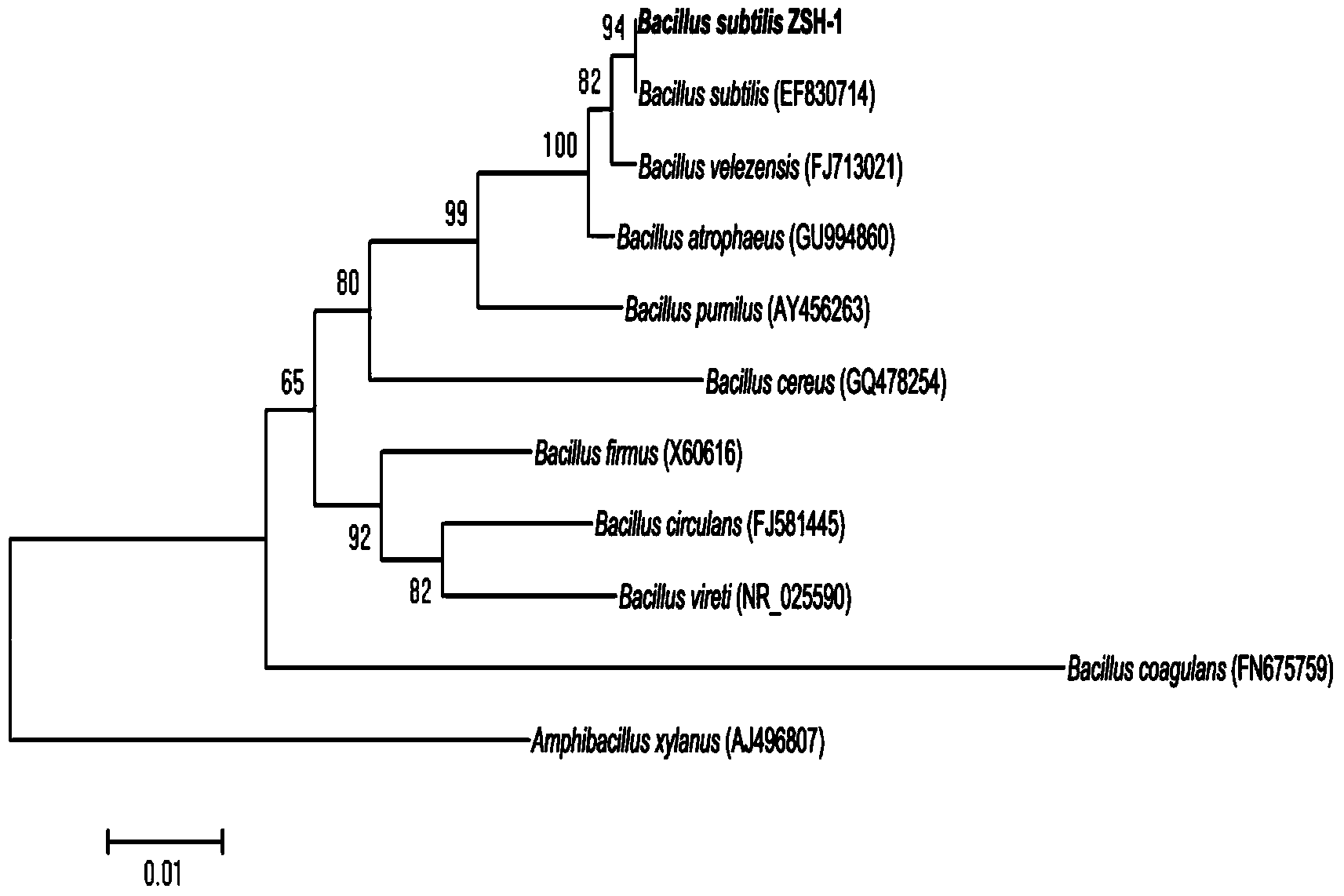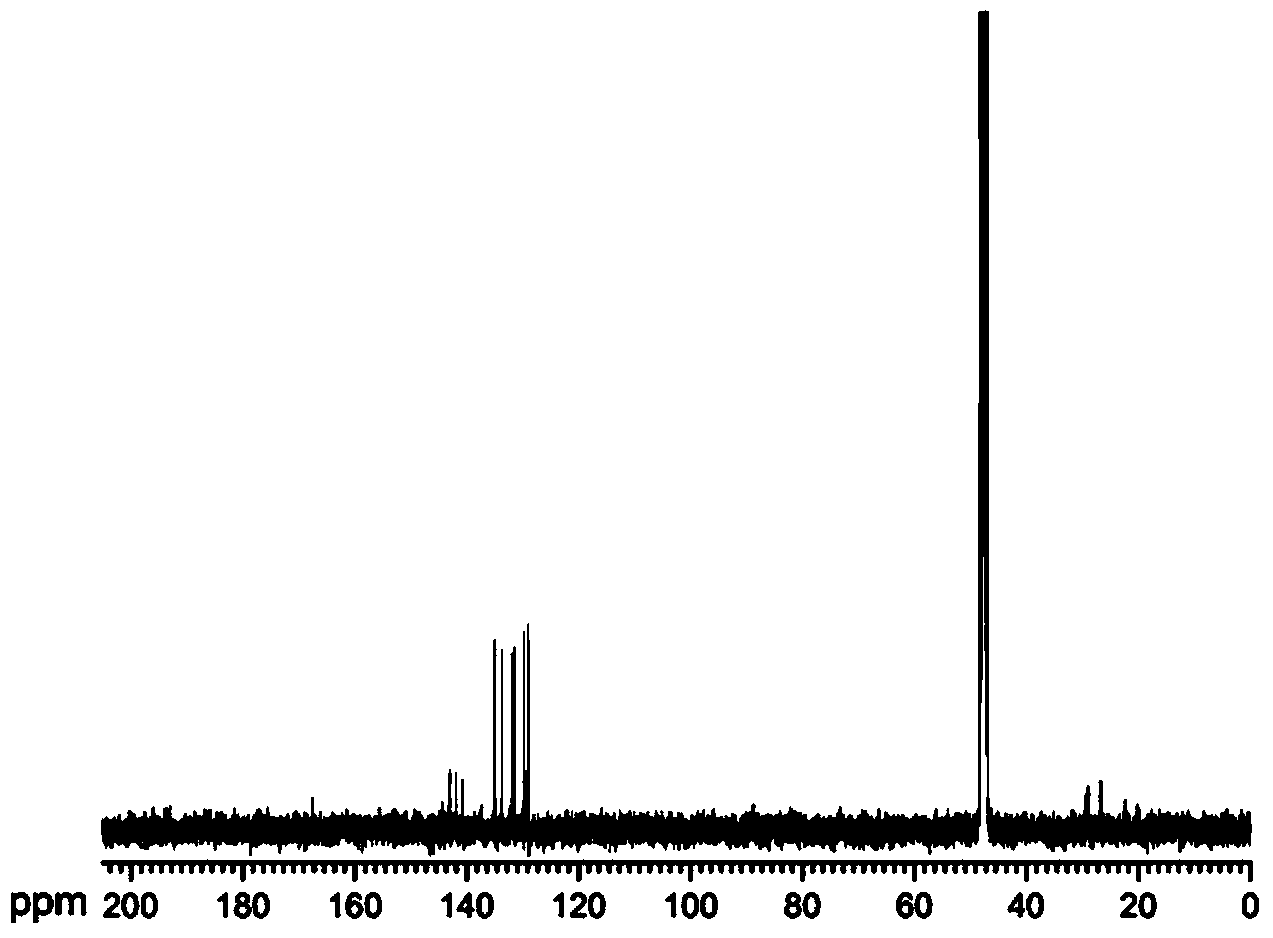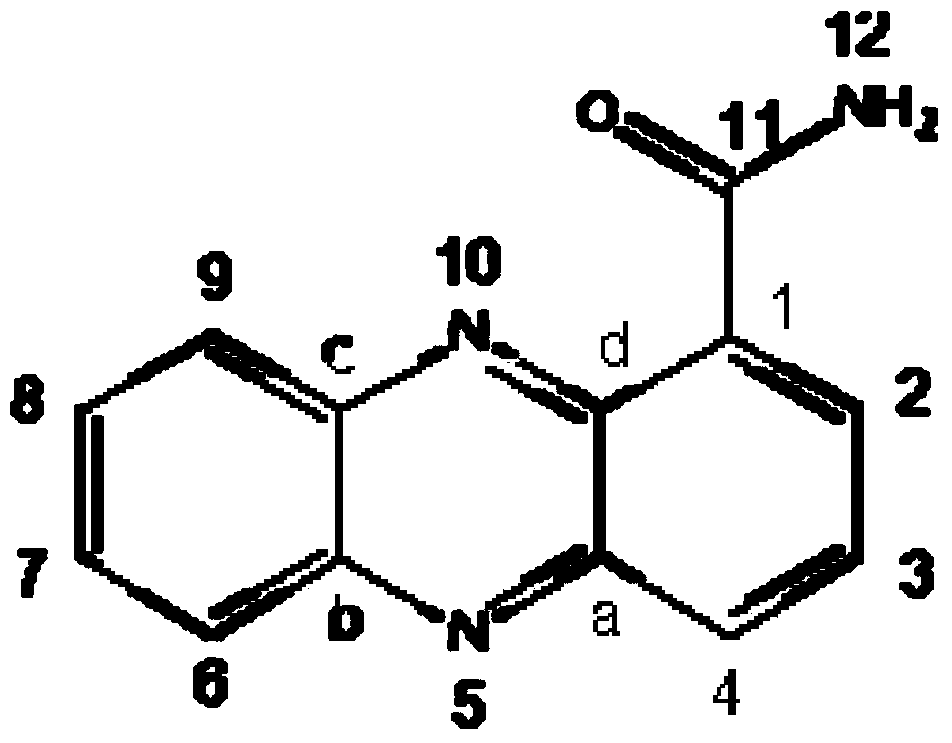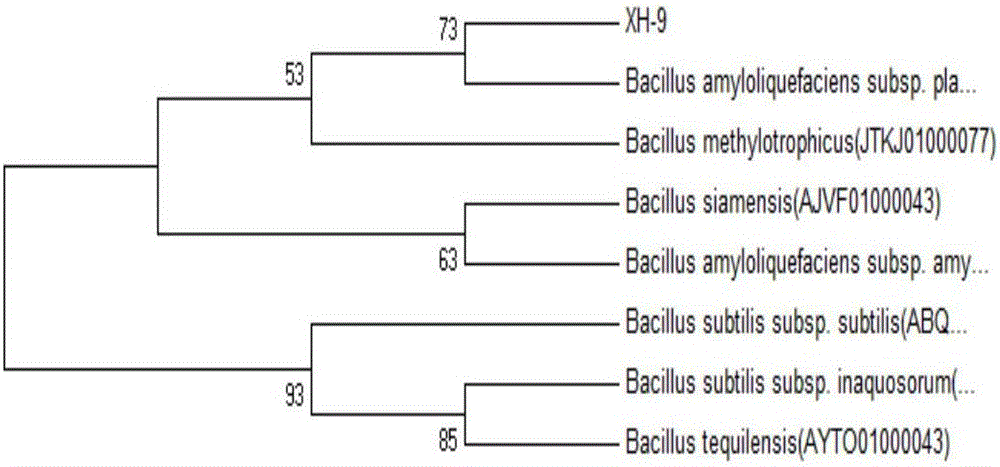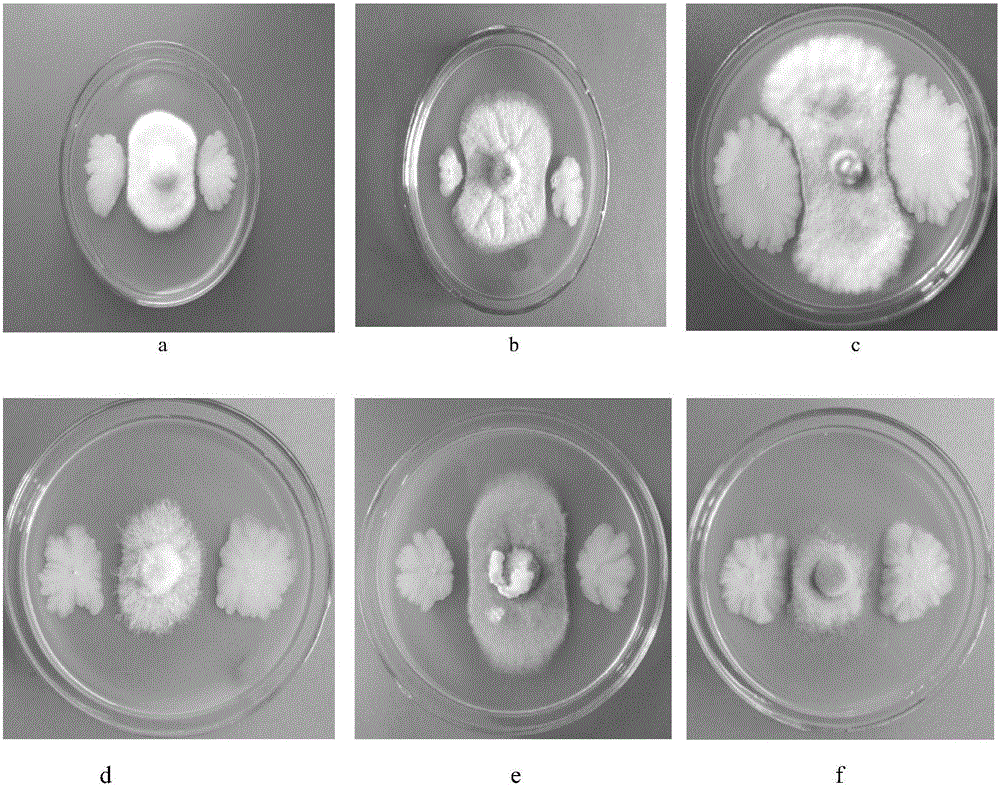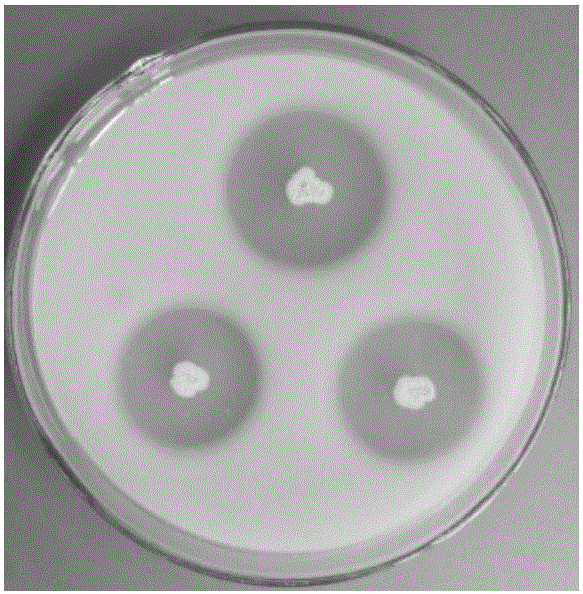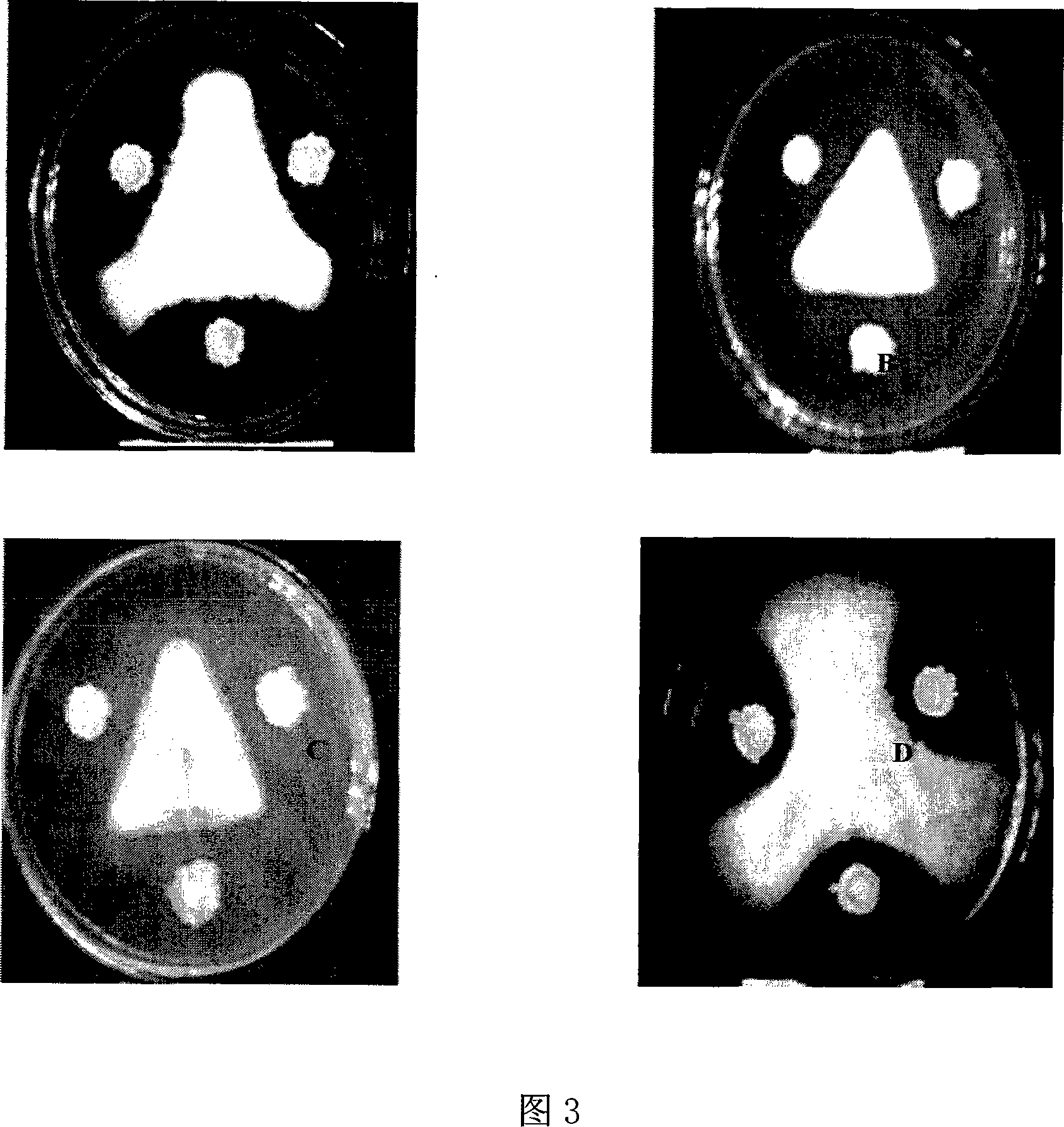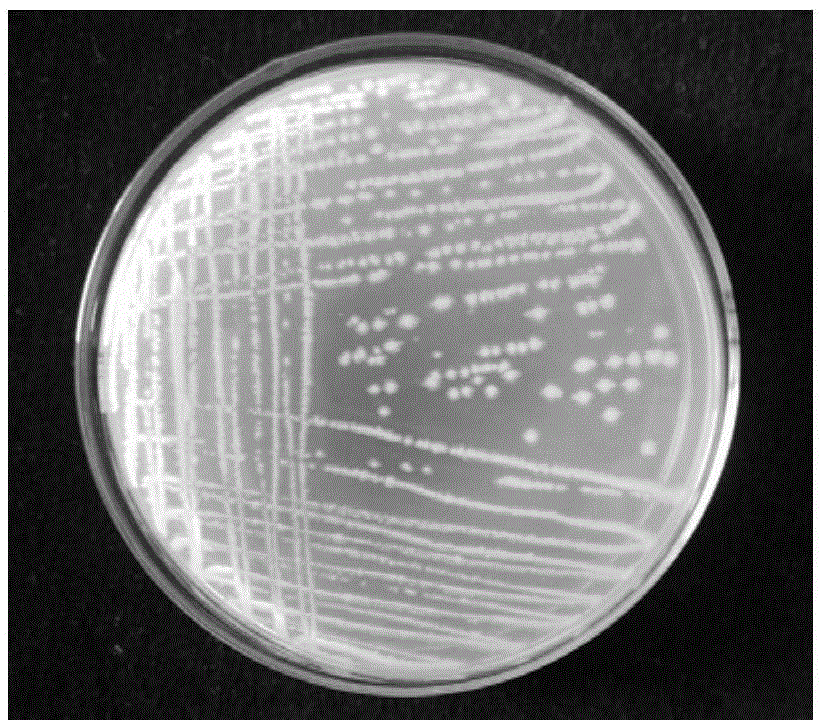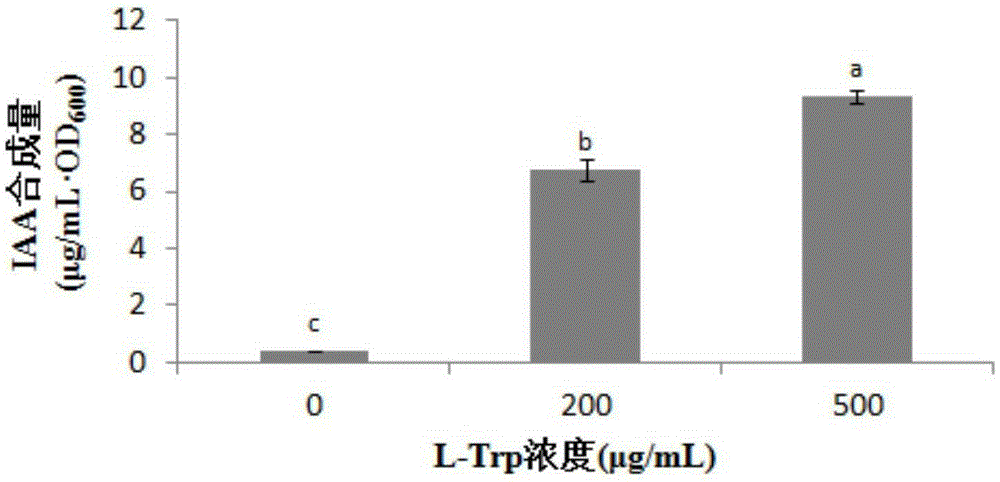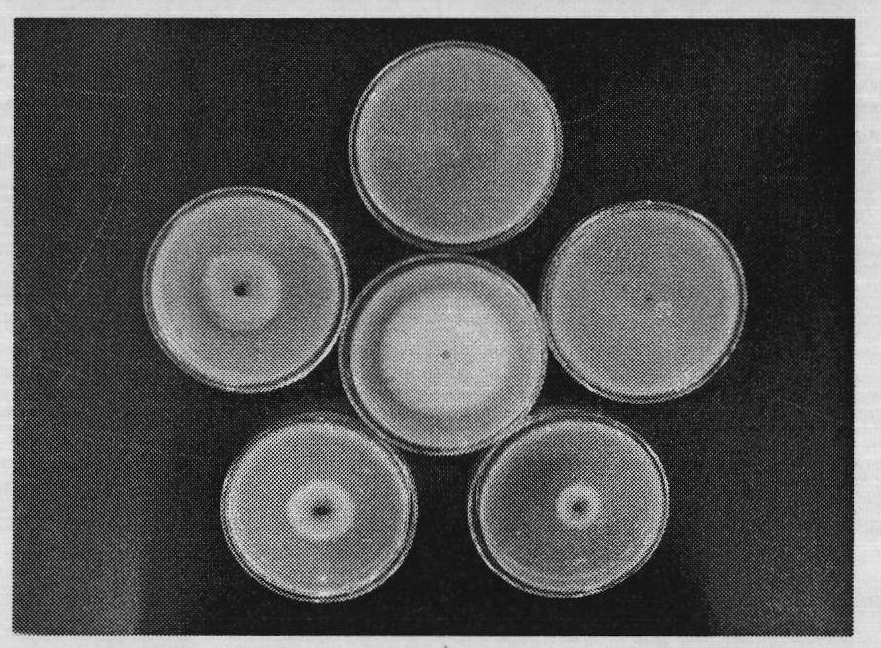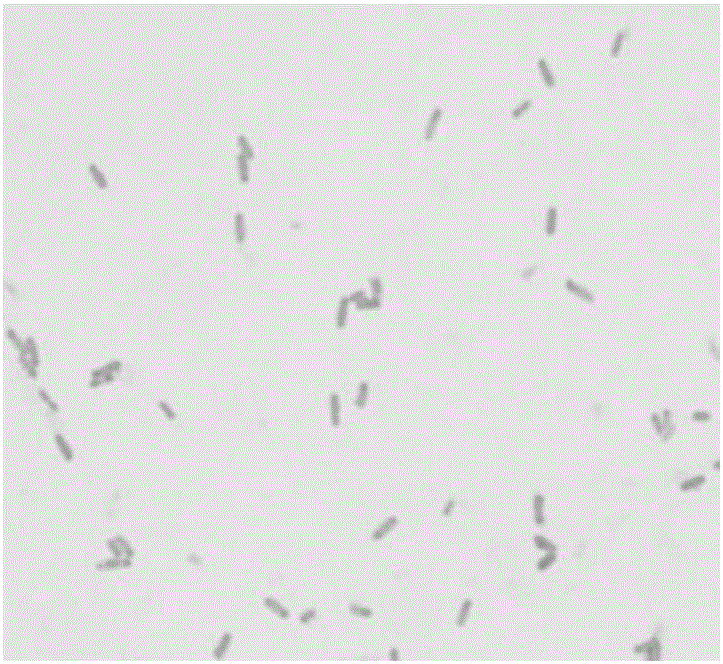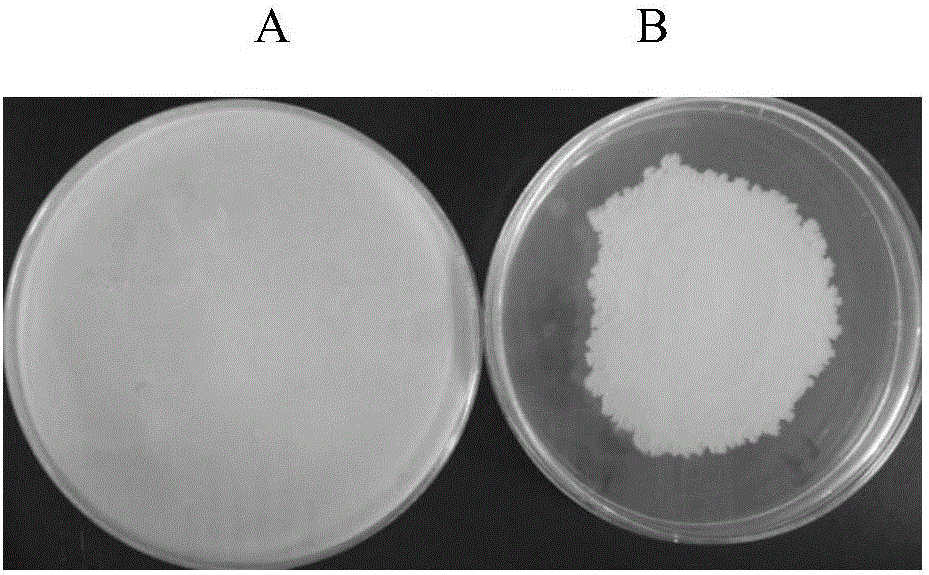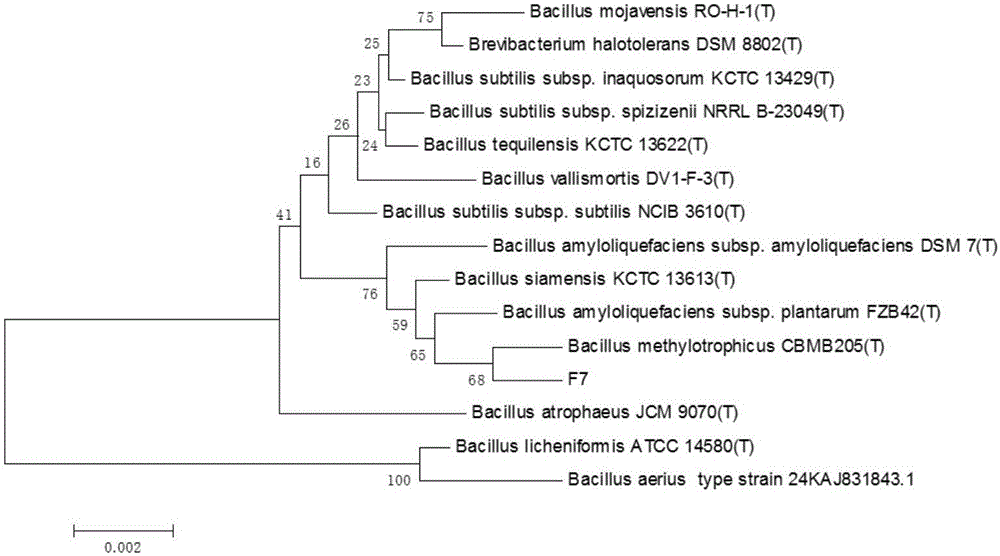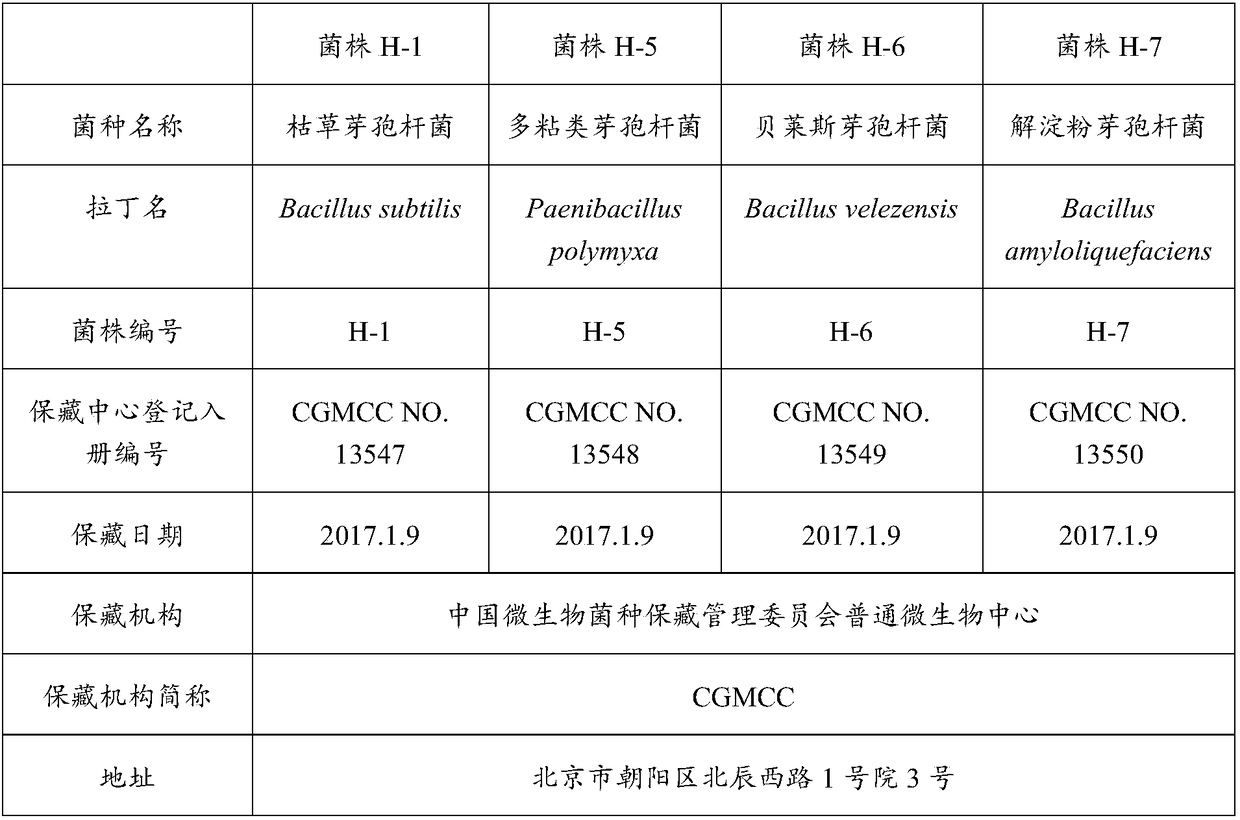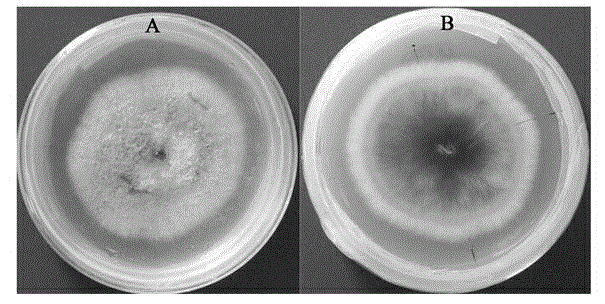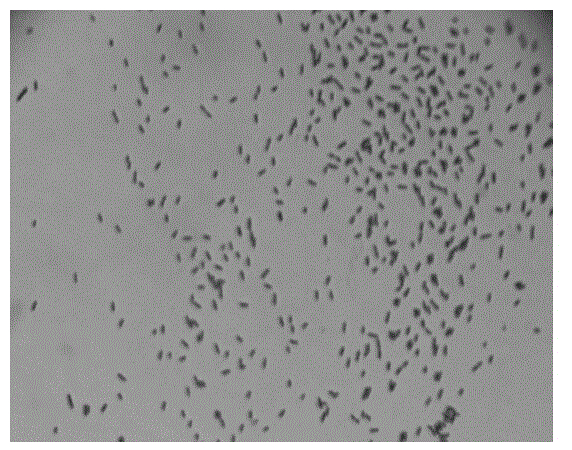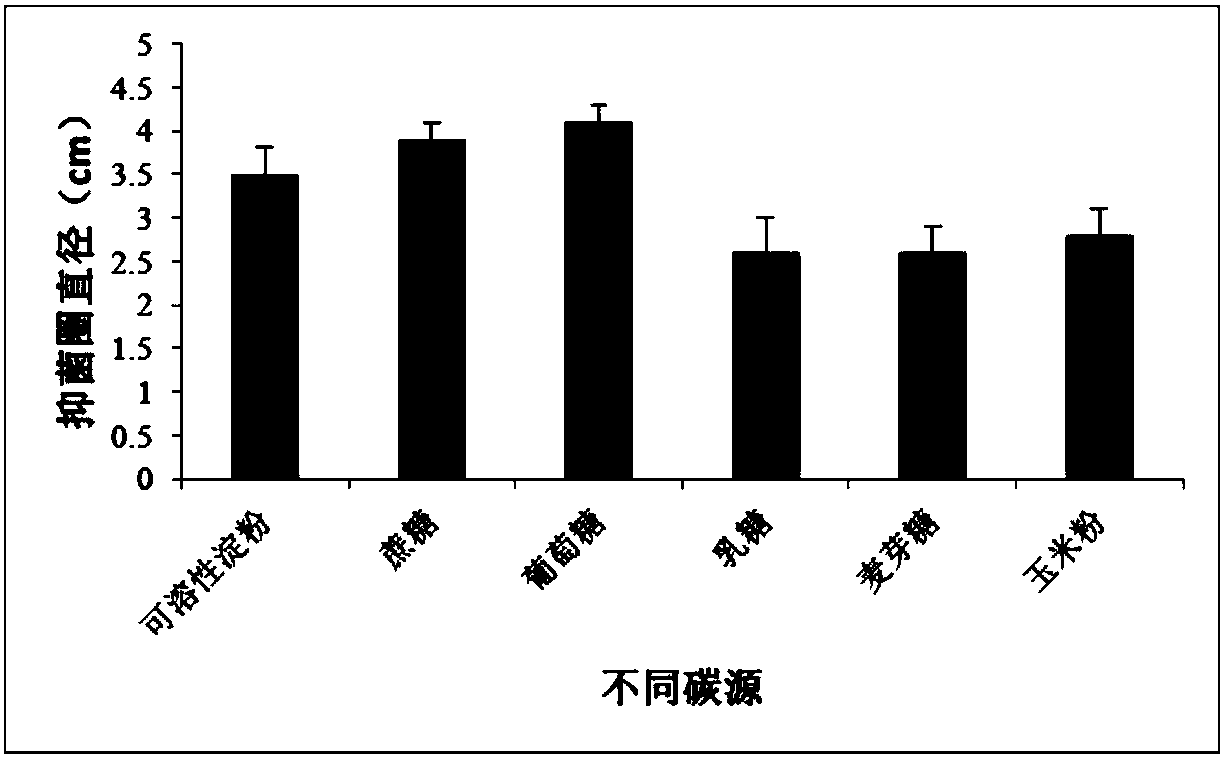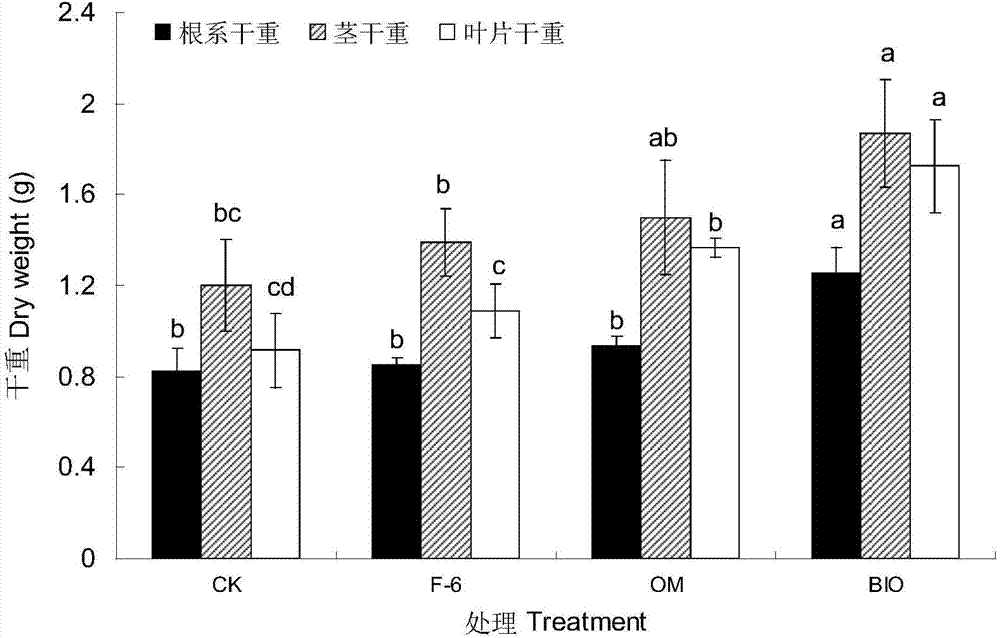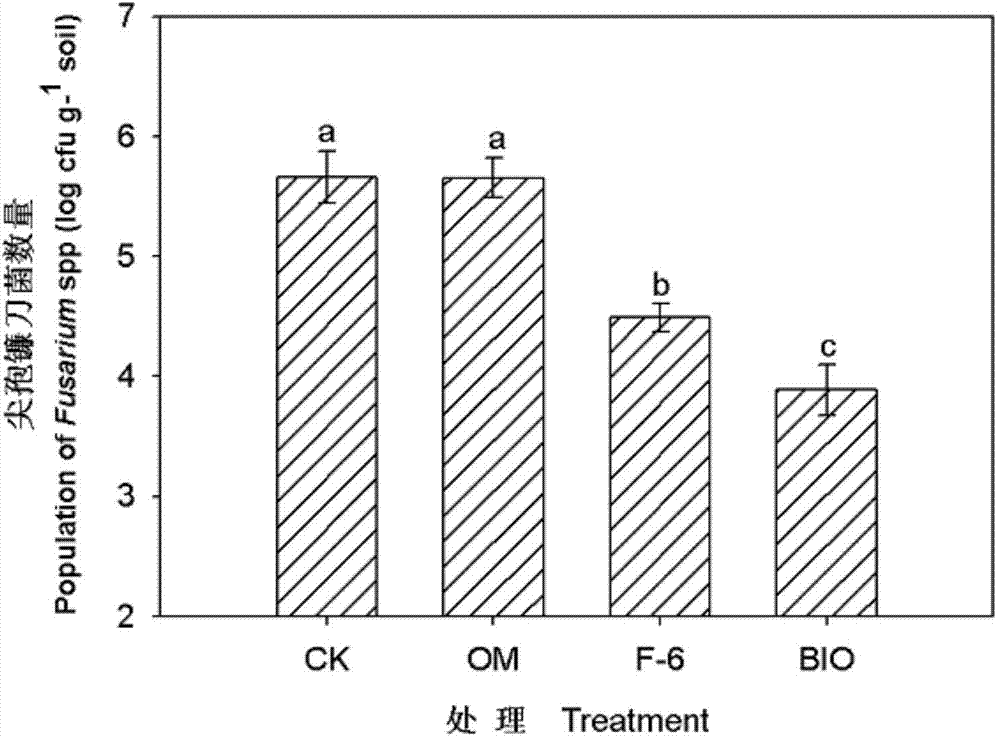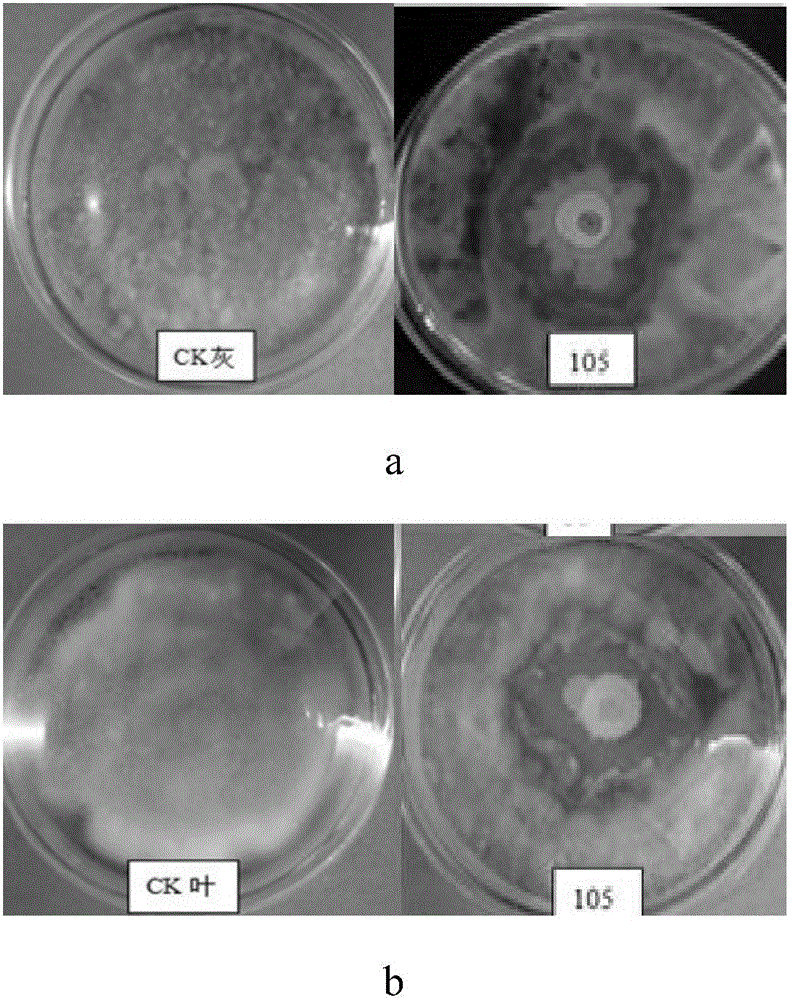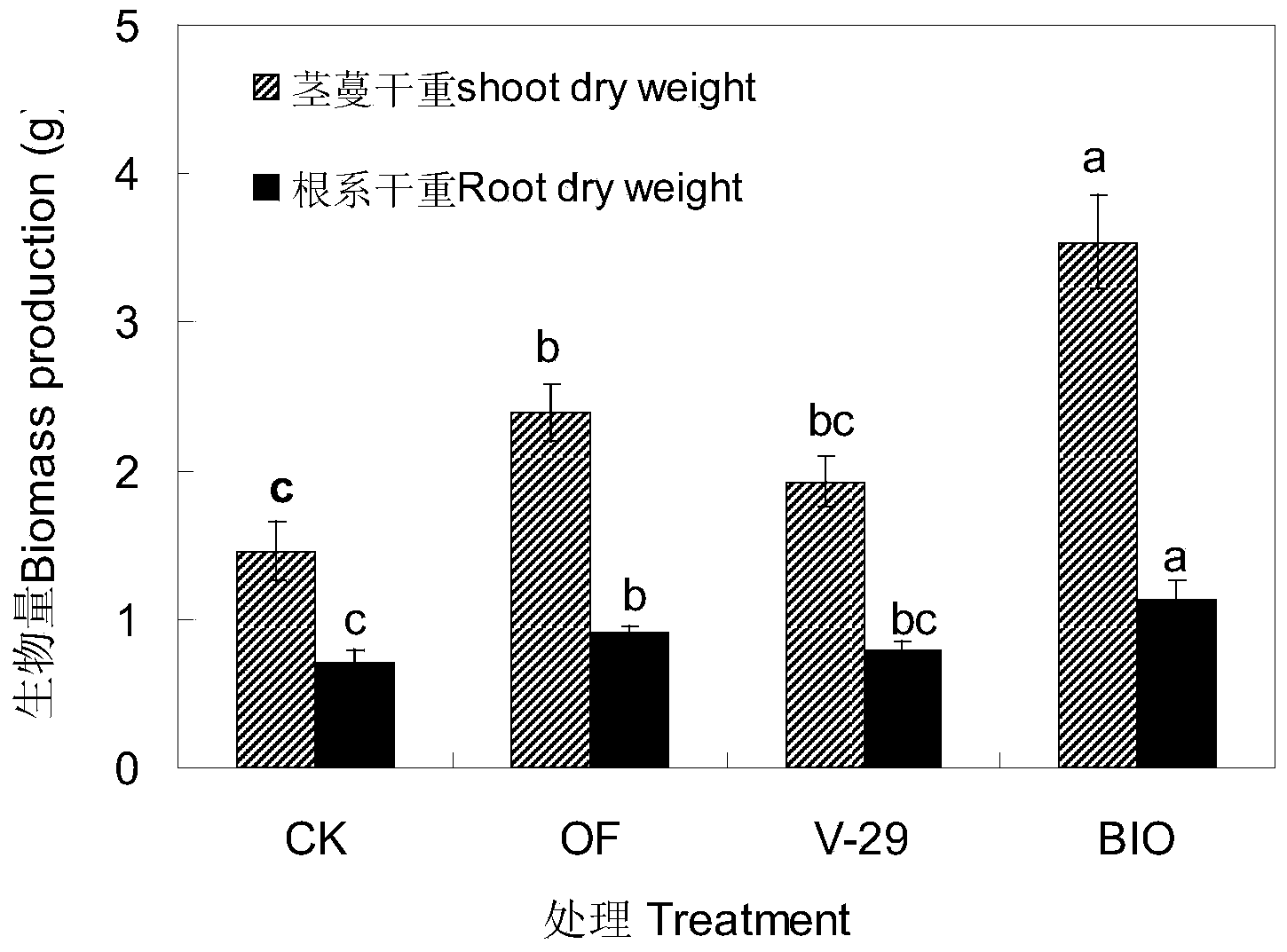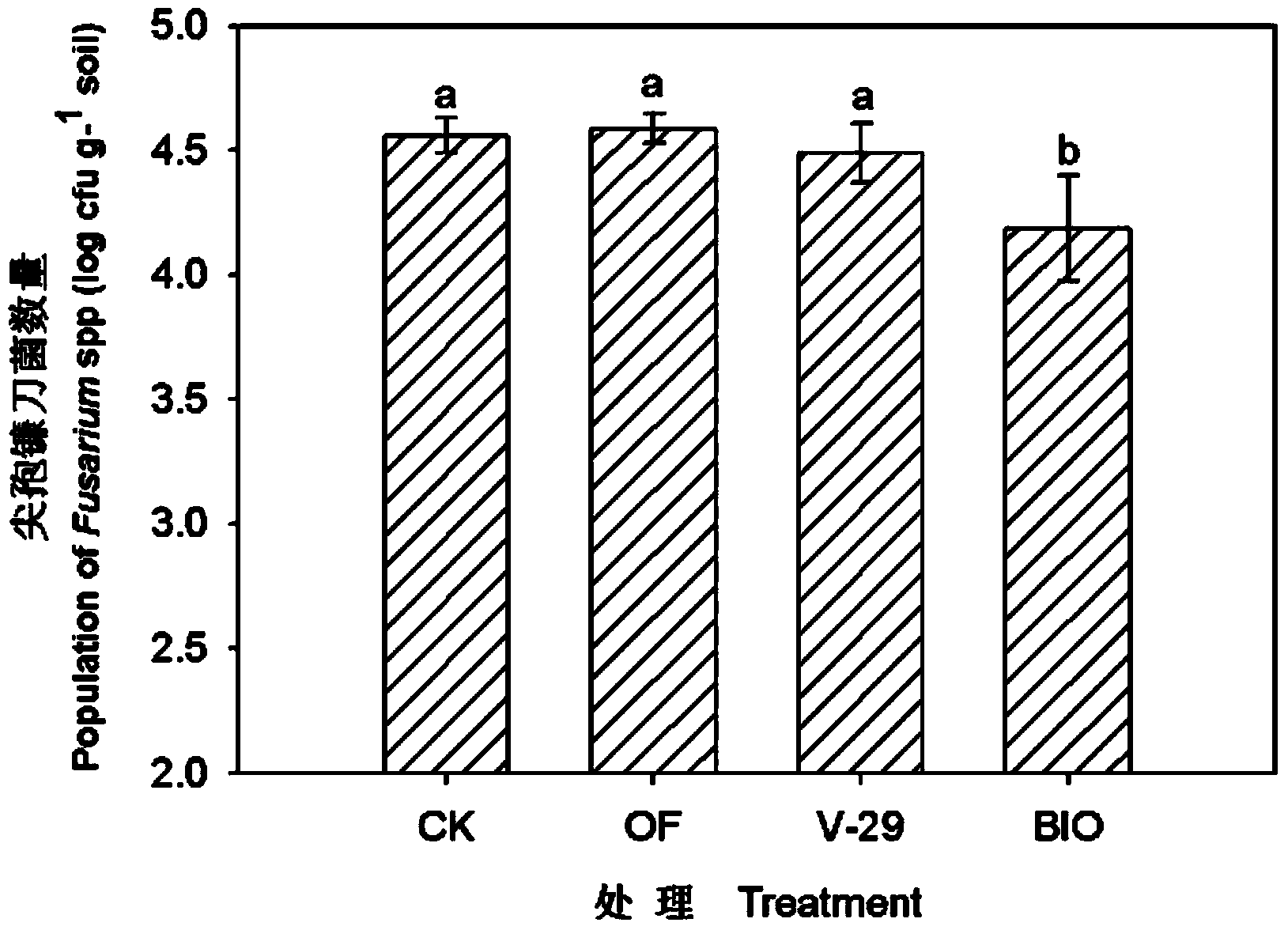Patents
Literature
Hiro is an intelligent assistant for R&D personnel, combined with Patent DNA, to facilitate innovative research.
727 results about "Fusarium oxysporum" patented technology
Efficacy Topic
Property
Owner
Technical Advancement
Application Domain
Technology Topic
Technology Field Word
Patent Country/Region
Patent Type
Patent Status
Application Year
Inventor
Fusarium oxysporum pronounce (Schlecht as emended by Snyder and Hansen), an ascomycete fungus, comprises all the species, varieties and forms recognized by Wollenweber and Reinking within an infrageneric grouping called section Elegans. It is part of the Nectriaceae family.
Bacillusamyloliquefaciens strain and application thereof
The invention relates to a strain of lys-starch bacillus as well its application. The bacterium is separated from the soil on eggplant fields, anning district, Lanzhou, Gansu. The bacterium is identified to be Bacillus amyloliquefaciens. It's preserved in the Chinese typical culture preserving center (CCTCC) with a preserving name of Bacillus amyloliquefaciens I7 and preserving code of M206027. The broth of M206027 and M206027strain, non-cell culture fluid of M206027 strain's broth, and the monomer extracted from the M206027strain, M206027 broth or its non-cell culture fluid can be used in the biological control of peach anthracnose bacterium, pear nigrities artis bacterium, apple brown rot bacterium, Fusarium acuminatum, Fusarium oxysporum, Fusarium semitectum, chilli black rot bacterium, cucumber blight bacterium, tomato early blight bacterium, eggplant early blight bacterium, dry thread Pyrenomycetes, wheat foot rot bacterium, potato thread Pyrenomycetes, potato early blight bacterium, potato late blight bacterium and watermelon downy mildew bacterium. It's easy to get the material of the invention and easy to operate; besides, it can be widely used in full scale production.
Owner:LANZHOU UNIVERSITY
Trichoderma viride fungi and preparation and application of fungicide thereof
ActiveCN102071145AGood antibacterial effectGood control effectBiocideFungiGaeumannomycesBiotechnology
The invention discloses a trichoderma viride fungi strain and a method for preparing a bio-control fungicide thereof and application. The strain is named as trichoderma viride strain ZBS6 and collected in the CGMCC, and the collection number is CGMCC No.3538. The microbial fungicide is liquid or solid fungicide, and is prepared from the trichoderma viride ZBS6 strain. The ZBS6 strain and the fungicide thereof have wide bacteriostatic spectrum and good bacteriostatic effect, and have strong inhibiting effect on botrytis cirerea, rhizoctonia solani, rhizocto-nia cerealis, gaeumannomyces grami, marssonina coronaria, fusarium oxysporum and the like; and the fungicide can be used for control of botrytis cirerea, cucumber downy mildew, rhizocto-nia cerealis, wheat soil-borne disease and wheat powdery mildew, is efficient, non-toxic and simple to use, and does not cause environmental pollution.
Owner:HENAN ACAD OF AGRI SCI
Biocontrol strain for antagonistic phytopathogen and use thereof
The invention discloses a biocontrol strain for an antagonistic phytopathogen and use thereof. The strain is streptomyces griseoruber Y1B (Streptomyces griseoruber Y1B) CCTCC No:M2013358. The streptomyces griseoruber Y1B is fermented by adopting a GYM culture medium; a fermentation liquor is collected, extracted, and distilled in vacuum, so as to prepare a fermentation crude product. The fermentation crude product has a good antibacterial effect on rhizoctonia solani and watermelon fusarium oxysporum.
Owner:SHANGHAI JIAO TONG UNIV
Bacillus subtilis strain and application thereof
The invention relates to a strain of Bacillus subtilis as well its application. The bacterium is separated from the soil on lily fields, fanjiaping, Lanzhou, Gansu. The bacterium is identified to be Bacillus-subtilis. It's preserved in the Chinese typical culture preserving center (CCTCC) with a preserving name of Bacillus-subtilis M22BH3 and preserving code of M206028. The broth of M22BH3 and M22BH3 strain, non-cell culture fluid of M22BH3 strain's broth, and the monomer extracted from the M22BH3 strain, M22BH3 broth or its non-cell culture fluid can be used in the biological control of peach anthracnose bacterium, pear nigrities artis bacterium, apple brown rot bacterium, Fusarium acuminatum, Fusarium oxysporum, Fusarium semitectum, chilli black rot bacterium, cucumber blight bacterium, tomato early blight bacterium, eggplant early blight bacterium, dry thread Pyrenomycetes, wheat foot rot bacterium, potato thread Pyrenomycetes, potato early blight bacterium, potato late blight bacterium and watermelon downy mildew bacterium. It's easy to get the material of the invention and easy to operate; besides, it can be widely used in full scale production.
Owner:LANZHOU UNIVERSITY
Bacillus amyloliquefaciens and microbial inoculum and application thereof
ActiveCN105132336AGrowth inhibitionWide range of sterilization applicationsBiocideBacteriaFusarium oxysporumMicroorganism
The invention discloses bacillus amyloliquefaciens and the microbial inoculum and application thereof. Bacillus amyloliquefaciens is a Latin name, the strain number is HC200, and the accession number in the China General Microbiological Culture Collection Center is CGMCC No.10371. The bacillus amyloliquefaciens has a selective antagonism effect on biocontrol bacteria and pathogenic bacteria and has a strong inhibiting effect on fusarium oxysporum, fusarium solani, phytophthora nicotianae and ralstonia solanacearum, and has a good synergetic antagonism effect on pathogenic bacteria by being matched with trichoderma viride H06.
Owner:ENVIRONMENT & PLANT PROTECTION INST CHINESE ACADEMY OF TROPICAL AGRI SCI
Bacillus amyloliquefaciens (Ba 168) and fermenting culture method and application of bacillus amyloliquefaciens
ActiveCN102839142AGood prevention effectGood environmental compatibilityBiocideBacteriaFiltrationBiological activation
The invention discloses bacillus amyloliquefaciens (Ba 168) and a preparation method and an application of the bacillus amyloliquefaciens, and aims at providing a biological control method of phytopathogens. The bacterial strain is preserved in the China General Microbiological Culture Collection Center (CGMCC), and the preservation number is CGMCC No.6462 on August 21, 2012. The bacterial strain is separated and obtained from soil in the Qinling Mountain virgin forest, and subjected to bacteria activation, shake-flask fermentation, seed liquid fermentation and large tank fermentation to obtain fermentation liquid; and the fermentation liquid is subjected to filtration and concentration, ultrafiltration membrane separation, and spray drying and packaging to be prepared into bactericide. The bacillus amyloliquefaciens has the advantages that the bacillus amyloliquefaciens can well prevent and cure bighead atractylodes rhizome root rot, American ginseng root rot, pseudo-ginseng root rot and other root rot caused by fusarium oxysporum.
Owner:杨凌绿都生物科技有限公司
Broad-spectrum antifungal plant endophytic bacillus subtillis and application thereof
ActiveCN101760438AStrong antagonistic effectTablet antagonistic activity is goodBiocideBacteriaVascular bundleDisease
The invention relates to bacillus subtillis R31 with broad-spectrum antagonism capacity on plant pathogenic fungi, and in particular provides a bacterial strain (CCTCC NO: M209261) of the Bacillus subtillis R31 as well as growth inhibition action thereof on the plant pathogenic fungi and especially capacity thereof on the biological prevention and control of banana vasicular wilt. The plant endophytic bacillus subtillis is proved to be new bacillus subtillis through obtained 16S rDNA and gyrA and gyrB gene segments as well as BLAST search and comparison on NCBI (National Center of Biotechnology Information) and has better flat antagonism activity on multiple plant pathogenic fungi, better antagonism capacity especially on various soil-borne and vascular bundle diseases, i.e. fusarium oxysporum, rhizoctonia solani, alternaria, and the like, and better prevention and control effect in greenhouses and fields.
Owner:GUANGDONG GEOLONG BIOTECH
Compound bacterium for preventing and treating root-knot nematode and preparation method thereof
InactiveCN104357358AInhibition of reproductionReduce usageBiocideFungiAureobasidium sp.Paecilomyces lilacinus
The invention discloses a compound bacterium for preventing and treating root-knot nematode and a preparation method thereof. The compound bacterium for preventing and treating root-knot nematode is prepared by the following steps: carrying out high-density cultivation on raw material strains of bacillus thuringiensis, pseudomonas fluorescens, bacillus subtilis, streptomycete, aspergillus niger, paecilomyces lilacinus and fusarium oxysporum, inoculating activated and cultivated strains in a fermentation tank and implementing fermentation and extended cultivation; dehydrating and drying various single strains obtained from extended cultivation to obtain resting microorganism dry powder; and mixing 10-20 parts of bacillus thuringiensis, 5-10 parts of pseudomonas fluorescens, 10-20 parts of bacillus subtilis, 10-20 parts of streptomycete, 10-15 parts of aspergillus niger, 10-25 parts of paecilomyces lilacinus and 8-15 parts of fusarium oxysporum to obtain the compound bacterium for preventing and treating root-knot nematode. The compound bacterium disclosed by the invention is used for preventing and treating root-knot nematode; and compared with an existing product, the compound bacterium is environment-friendly, harmless and non-toxic to a human body and good in control efficiency.
Owner:SHANDONG SUKAHAN BIO TECH
Lilium regale Wilson WRKY transcription factor gene LrWRKY1 and application
ActiveCN105441460AIncrease resistanceReduce usagePlant peptidesFermentationNicotiana tabacumNucleotide
The invention discloses a lilium regale WRKY transcription factor gene LrWRKY1. The lilium regale WRKY transcription factor gene LrWRKY1 has a nucleotide sequence shown as SEQ ID NO: 1, and codes a protein with a nucleotide sequence shown as SEQ ID NO: 2. According to the lilium regale Wilson WRKY transcription factor gene LrWRKY1, functional genomics related technical research verifies that the LrWRKY1 gene has the function of increasing the fungus resistance of plants; when the antifungal LrWRKY1 gene is constructed to a plant expression vector and is transferred to tobaccos for overexpression, transgenic tobacco plants have strong in-vitro antifungal activities, and experimental results show that the LrWRKY1 overexpressed transgenic tobaccos have obvious inhibiting effects on the growth of four fungi including botryosphaeria, sclerotinite, botrytis cinerea and fusarium oxysporum.
Owner:KUNMING UNIV OF SCI & TECH
Strain of efficient bacillus amyloliquefaciens, and bacterial agent and application thereof
ActiveCN108690821AGood inhibitory effectHigh inhibitory effectBiocideFungiDiseasePaecilomyces lilacinus
The invention discloses a strain of efficient bacillus amyloliquefaciens, and a bacterial agent and application thereof, wherein the Latin name of the bacillus amyloliquefaciens is Bacillus amyloliquefaciens; the strain number is HW05; the accession number of the bacillus amyloliquefaciens in China General Microbiological Culture Collection Center is CGMCC No. 10273. The efficient bacillus amyloliquefaciens provided by the invention has the obvious inhibition effects on fusarium oxysporum, phytophthora capsici, ralstonia solanacearum, pyricularia grisea, colletotrichum gloeosporioides and root-knot nematode. Through the single application of HW05, the efficient prevention and control effects can be achieved on leaf surface disease sweet melon powdery mildew, mango anthracnose diseases andmulberry red rust diseases; the HW05 and paecilomyces lilacinus can be matched for preventing and treating soil-borne banana wilting diseases and banana root-knot nematode diseases, and a good synergyeffect is achieved.
Owner:ENVIRONMENT & PLANT PROTECTION INST CHINESE ACADEMY OF TROPICAL AGRI SCI
Endo-bacillus subtilis TR21 of plants and application thereof
ActiveCN101845410AStrong antagonistic effectTablet antagonistic activity is goodBiocideBacteriaPlant diseaseGyrb gene
The invention relates to a bacillus subtilis str.TR21 (hereinafter referred to as 'TR21') strain having broad-spectrum antagonism to plant pathogenic fungi, in particular to the bacillus subtilis TR21 strain and a growth inhibition function thereof on the plant pathogenic fungi. The bacillus subtilis TR21 strain provided by the invention is preserved in China Center for Type Culture Collection (CCTCC) in January 20, 2010 with a preservation number of CCTCC No: M2010019, wherein the China Center for Type Culture Collection is located in Wuhan University, Lojia Mountain, Wuchang, Hubei, China. The strain provided by the invention is proved by obtained gene segments 16S rDNA, gyrA and gyrB and BLAST search and comparison on NCBI to be a novel bacillus subtilis strain having relatively higher flat antagonistic activity to a plurality of plant pathogenic fungi, particularly having high antagonism to various soil borne vascular diseases, such as fusarium oxysporum, rhizoctonia solani, alternaria and the like, and having good prevention and control effects shown in fields.
Owner:珠海鼎元生态农业有限公司
Antagonistic phytopathogen strain and application thereof
The invention discloses a plant pathogenic fungus antagonistic bacterium strain and application thereof in preventing and treating plant diseases. The antagonistic bacterium is Bacillus subtilis ZSH-1, and the collection number is CGMCC NO.9025. The Bacillus subtilis ZSH-1 is separated from poplar root soil, and can prevent and treat plant diseases caused by poplar anthracnose bacterium, poplar rot bacterium, willow rot bacterium, apple rot bacterium, birchleaf pear rot bacterium, Fusarium oxysporum and date corky core bacterium. The antibacterial volatile matters generated by the antagonistic bacterium can also prevent and treat plant diseases caused by poplar anthracnose bacterium, poplar rot bacterium, willow rot bacterium, apple rot bacterium, birchleaf pear rot bacterium, Fusarium oxysporum and date corky core bacterium. The Bacillus subtilis ZSH-1 is a biological control potential strain with high prevention effect, wide preventing and treating range and high environmental safety, and has favorable development and application prospects.
Owner:北京百瑞盛田环保科技发展有限公司
Gene engineering bacterial strain used for producing phenazine-1-methanamide and its purpose
ActiveCN103642714AIncrease productionEffective biological controlBiocideBio-organic fraction processingBiotechnologyBacterial strain
The invention discloses a gene engineering bacterial strain used for producing phenazine-1-methanamide and its purpose; which is characterized in that knockout of psrA or rpeA gene in Pseudomonas chlororaphis HT66(Pseudomonas chlororaphis HT66) CCTCC NO: M 2013467 genome is carried out. According to the invention, a strain of Pseudomonas chlororaphis is performed with seed culture, fermentation, extraction, concentration and crystallization to obtain phenazine-1-methanamide with purity of more than 96%. After the deletion of psrA and rpeA gene in the bacterium genome, the fermentation output of phenazine-1-methanamide can reach as high as 1800ppm. The agar plate bacteriostasis tests found that phenazine-1-methanamide has obvious inhibition effect on common plant pathogenic fungi such as Rhizoctonia solani, fusarium oxysporum, pythium wltmum and Stevia Septoria, has good stability and activity, and has good application prospect.
Owner:SHANGHAI JIAO TONG UNIV
Application and preparation of bacillus amyloliquefaciens subsp. plantarum and bacterial agent thereof
ActiveCN106591185ABroad antagonistic spectrumStable colonizationPlant growth regulatorsBiocide1-aminocyclopropanecarboxylic acidTriticeae
The invention relates to application and preparation of bacillus amyloliquefaciens subsp. plantarum and a bacterial agent thereof. An XH-9 bacterial strain is identified as bacillus amyloliquefaciens subsp. plantarum according to mycelial morphology, colony characteristics, physiological and biochemical indexes and 16S rDNA sequence analysis and is preserved in the China General Microbiological Culture Collection Center, and a preservation number is CGMCC NO.13151. The strain is high in antagonistic effect on pathogenic fungi such as fusarium oxysporum, bipolaris sorokiniana, fusarium pseudograminearum, colletotrichum gloeosporioides, botryosphaeria dothidea and alternaria alternata and is capable of generating heteroauxin and 1-aminocyclopropanecarboxylic acid (ACC) deaminase to stimulate plant growth and capable of degrading celluloses and can be stably colonized at rhizospheres of crops such as wheat, corn, peppers and the like. The bacterial agent prepared from the bacterial strain can be applied to prevention and treatment of root rot diseases or other soil-borne fungal diseases of crops such as wheat, corn, peppers and the like and has dual functions of disease prevention and growth promotion. The bacterial agent is simple in preparation process, short in fermentation period, low in cost and beneficial to industrial production and transport.
Owner:SHANDONG AGRICULTURAL UNIVERSITY
Bacillus amyloliquefaciens and application thereof
ActiveCN104560837AGood treatment effectInhibition of growth and reproductionBiocideFungiPlant diseaseBacilli
The invention relates to the technical field of screening of functional microorganisms, and particularly provides a bacillus amyloliquefaciens strain, wherein the collection number is CCTCC NO: M2015075. Growth and propagation of pathogenic bacteria such as alchemilla japonica podosphaera leucotricha, botrytis cinerea, fusarium oxysporum and rhizoctonia solani can be significantly inhibited by bacillus amyloliquefaciens; plant diseases such as strawberry powdery mildew and cucumber gray mold are effectively prevented and treated; and the effect is significant. The bacillus amyloliquefaciens can be applied to prevention and treatment of the plant diseases as an antibiological inoculant, and can also be compounded with other bacilli and moulds with bacteriostatic action to prepare a compound microorganism preparation; the prevention and treatment efficiency on the plant diseases such as powdery mildew, gray mold, brown blotch and fruit rot is 85%-90%; and the application prospect is wide.
Owner:山东蔚蓝绿源生物科技有限公司 +2
Bacillus subtilis 203 for highly effective preventing and curing banana wilt and application thereof
InactiveCN101186887AEnhanced inhibitory effectVarious modes of actionBiocideBacteriaFusarium oxysporumColletotrichum musae
The invention discloses bacillus subtils 203 for high effectively preventing banana wilt, and the preservation number of the bacillus subtils 203 is CCTCCM207094. The invention simultaneously discloses a process for preparation and usage. The bacillus subtils 203 are obtained after being selected by being cultured face to face on a plate and doing pot experiment, which which is capable of effectively preventing the growth of fusarium oxysporum and has wide antimicrobial spectrum. The invention is also capable of performing antagonistic action on various pathogenic fungi, such as cotton-wilt fusarium, verticillium wilt pathogen, fusarium oxysporum f. sp. niveum, fusarium oxysporum f. sp. lycopersici, curvulavia lunata or colletotrichum musae and the like, which is good in environmental security and good in prospect of development and application.
Owner:SOUTH CHINA AGRI UNIV
Bacillus subtilis CYY-25 and application thereof
ActiveCN105296381APromote growthEnhanced inhibitory effectBiocidePlant growth regulatorsPyriculariaRoot rot
The invention discloses bacillus subtilis CYY-25 and belongs to the field of microorganisms. The bacillus subtilis CYY-25 is preserved with the preservation number CGMCC No.8995 in China General Microbiological Culture Collection Center and is capable of producing cellulase when salinity ranges from 0% to 15%. The bacillus subtilis CYY-25 is capable of synthetizing IAA and siderophore, dissolving sparingly soluble inorganic phosphorus, promoting plant growth and well inhibiting multiple kinds of plant pathogenic fungi such as fusarium oxysporum, pyricularia oryzae, sclerotinia sclerotiorum, fusarium moniliforme and sclerotinia sclerotiorum, is of great significance to prevention and control of alfalfa root rot and is suitable for being developed and used as an agricultural fungicide.
Owner:HARBIN NORMAL UNIVERSITY
Derivatives containing 2, 5-substituted heterocyclic radical sulphone and synthesis method and application thereof
The invention relates to derivatives containing 2, 5- substituted heterocyclic radical sulphone and a synthesis method and application thereof, and provides compounds which can prevent soil-borne diseases and diseases caused by migration, namely the derivatives containing 2, 5-substituted heterocyclic radical sulphone. The derivatives can be expressed by the following general expression shown in the specification, wherein the Z, X and R are defined in the specification. Parts of the compounds have good inhibition activity for the soil-borne diseases, the diseases caused by migration and otherfungus diseases. When the drug concentration reaches 50ppm, the inhibition ratio of a compound I-5 for fusarium graminearum, fusarium oxysporum f.sp.capsicum and cytospora mandshurica is 100%, 99.9% and 100% respectively, thus showing a preferable activity in preventing plant diseases.
Owner:GUIZHOU UNIV
Bacillus methylotrophicus F7 and application thereof
PendingCN106754489AStrong antagonistic effectGood biological control effectPlant growth regulatorsBiocideRalstonia solanacearumPlant growth
The invention discloses bacillus methylotrophicus F7 and an application thereof. The invention aims at providing a strain which has a plurality of beneficial properties, namely producing siderophore, cellulase and protease, producing auxin, producing ammonia and the like; the strain not only can be used for effectively inhibiting various pathogenic bacteria such as ralstonia solanacearum, fusarium oxysporum f.sp.cubense, colletotrichum gloeosporioides, fusarium oxysporum f.sp cucumerinum but also can promote plant growth. In accordance with the technical scheme, the bacillus methylotrophicus F7 is preserved in China General Microbiological Culture Collection Center (CGMCC) on February 1, 2016, with preservation number of CGMCC No.12124; in addition, five surfactin homologs, six fengycin homologs and three iturin homologs, which have an antibacterial effect, are extracted from fermentation liquid of the bacillus methylotrophicus F7; and the bacillus methylotrophicus F7 belongs to the field of agricultural biotechnology.
Owner:SOUTH CHINA AGRI UNIV
Biological control agent, bioorganic fertilizer, and applications thereof
ActiveCN108753664ADisease prevention and controlGrowth inhibitionBiocideCalcareous fertilisersBiotechnologyFusarium oxysporum
The invention relates to a biological control agent, a bioorganic fertilizer, and applications thereof. The biological control agent comprises Bacillus velezensis, Bacillus subtilis, Paenibacillus polymyxa, and Bacillus amyloliquefaciens. The provided biological control agent and bioorganic fertilizer can continuously inhibit fusarium oxysporum for a long term, and has a long-lasting control effect on plant blight, in particular, banana blight.
Owner:INST OF AGRI RESOURCES & ENVIRONMENT GUANGDONG ACADEMY OF AGRI SCI
Trichoderma viride and application thereof
The invention discloses trichoderma viride and application thereof. The trichoderma viride is particularly trichoderma viride H06 with CGMCC No. 6229 which has the high prevention and control effect on banana wilt caused by fusarium oxysporum. sp. cubense specialized form No.4 (FOC), wherein the prevention and control effect on banana wilt can be 88%; and the trichoderma viride H06 with CGMCC No.6229 is simple in cultivation conditions, easy to store and industrially produce and excellent in development application prospect.
Owner:ENVIRONMENT & PLANT PROTECTION INST CHINESE ACADEMY OF TROPICAL AGRI SCI
Antagonistic bacterium for controlling radix rehmannia root rot and application of antagonistic bacterium
InactiveCN104877943AStrong antagonistic effectEnhance colonization abilityBacteriaMicroorganism based processesContinuous croppingAspergillus flavus
The invention provides an antagonistic bacterium for controlling radix rehmannia root rot. The antagonistic bacterium is named as pseudomonas aeruginosa LK-12 (the Preservation No.: CGMCC 10966) after authentication. The pseudomonas aeruginosa LK-12 disclosed by the invention is obtained by screening from continuous cropping rhizosphere soil of radix rehmannia root through an agar disk diffusion method. Fusarium oxysporum and aspergillus flavus pathogenic bacteria separated from lesion parts of the radix rehmannia root have a high antagonistic effect; in the meanwhile, fusarium oxysporum, fusarium moniliforme, talaromyces sp. and other pathogenic bacteria separated from lesion parts of radix pseudostellariae also have a remarkable restriction effect and can be used for effectively controlling root rot diseases of medicinal plants comprising the radix rehmannia root to provide a strain for overcoming or relieving replant diseases of the medicinal plants. Therefore, the antagonistic bacterium is a potential biological control strain which is good in biological control effect, free of pollution as well as safe and ecological, and is wide in development and application prospects.
Owner:FUJIAN AGRI & FORESTRY UNIV
Pyridine salt compound containing 1,3,4-oxadiazolyl (thiadiazolyl) and preparation method and application thereof
InactiveCN105541822AImprove biological activityEnhanced inhibitory effectBiocideOrganic chemistryXanthomonas axonopodisRalstonia solanacearum
The invention disclose a pyridine salt compound containing 1,3,4-oxadiazolyl (thiadiazolyl) and a preparation method and application thereof. The compound is of the structure shown in the general formula (I). Based on the 1,3,4- oxadiazole (thiadiazole) thioether (sulfoxide or sulfone) compound, a pyridine base capable of improving the biological activity of the target compound is introduced into the system, and a series of 1,3,4- oxadiazole (thiadiazole) oxygen ether, thioether, sulfoxide or sulfone amphipathic molecules containing pyridine salt are synthesized. It is found that the compound has the good restraining effect on pathogenic bacteria and fungi such as Xanthomonas oryzae pv. oryzae, Ralstonia solanacearum, Xanthomonas axonopodis pv. citri, Gibberella zeae, Phytophythora infestans, Rhizoctonia solani, Borrytis cinerea, Fusarium oxysporum and Phytophythora infestans, and provides an important scientific foundation for new pesticide research, development and creation.
Owner:GUIZHOU UNIV
Strain of Paenibacillus jejuni capable of inhibiting anthrax and Fusarium and application thereof
ActiveCN109266589AGood control effectBroad spectrum antibacterialBiocideBacteriaSheath blightFusarium
The invention discloses a strain of Paenibacillus jejuni for inhibiting anthrax and Fusarium and an application thereof. A strain of Paenibacillus jamilae is isolated from the deep sea sediment, the strain was deposited at the General Microbial Center of the China Microbial Culture Collection Management Committee under accession number CGMCC No.16231 on August 8, 2018. The strain has broad-spectrum resistance to many plant pathogens, and has good control effect on fruit tree (citrus, apple, grape) anthracnose caused by Colletotrichum gloeosporioides and vegetable wilt caused by Fusarium oxysporum.
Owner:CHINA KINGDOM AGRITECH QINGDAO
Application of bacillus amyloliquefaciens in preventing and controlling fungal disease of plants
The invention discloses application of bacillus amyloliquefaciens in preventing and controlling fungal disease of plants. The application has the advantages that found by study, the bacillus amyloliquefaciens, especially bacillus amyloliquefaciens BSY3 separated and screened from African marigold by an inventor, has obvious antagonistic function on phellinus noxius, pyricularia cannaecola hashioka, sclerotinia sclerotiorum, colletotrichum sp., pestalotiopsissp, fusarium oxysporum f.sp.cubense and the like, and has obvious biological control function and potential application value on preventing and controlling of the fungi diseases due to pathogenic bacteria; the bacillus amyloliquefaciens comes from endophytic bacteria in plants, so that compared with the traditional chemical agent preventing and control method, the safer biological control effect on the fungi diseases is realized; because the bacillus amyloliquefaciens stays in the plant for a long time, the survival relationship with harmonious coexistence and stable development is established with the plant; compared with the chemical agent, the biocontrol function can be more effectively and stably realized.
Owner:广州市林业和园林科学研究院
Bacillus cereus and application of bacillus cereus
ActiveCN103667158AEnhanced inhibitory effectStable colonizationBiocideBio-organic fraction processingContinuous croppingFusarium oxysporum
The invention relates to the field of microorganisms, and particularly discloses bacillus cereus. The bacillus cereus is collected in CGMCC (China general microbiological culture collection center), and has the collection number being CGMCC No.7979. The bacillus cereus can be stably colonized in the soil, the soil microbial environment is improved, the biological continuous cropping obstacle is eliminated, in addition, an obvious inhibition effect is realized on fusarium oxysporum, in addition, the growth of vanilla can be prompted, and the bacillus cereus can be applied to prevention and treatment of fusarium oxysporum, vanilla growth promotion and preparation of relevant products.
Owner:海南兴科热带作物工程技术有限公司
Wheat rhizosphere paenibacillus polymyxa WXD 6-4 and application thereof
ActiveCN105132324APromote growthEnhanced inhibitory effectBiocidePlant growth regulatorsTriticeaePaenibacillus polymyxa
The invention discloses wheat rhizosphere paenibacillus polymyxa WXD 6-4, and belongs to the field of biotechnology. The wheat rhizosphere paenibacillus polymyxa WXD 6-4 is classified and named as paenibacillus polymyxa, which is preserved in China General Microbiological Culture Collection Center with preservation number of CGMCC No. 8997. The wheat rhizosphere paenibacillus polymyxa WXD 6-4 disclosed by the invention can be used for synthesizing IAA and siderophore to dissolve insoluble inorganic phosphorus, so as to promote growth of plants, and fermentation broth can take a good inhibitory effect on cochliobolus sativus, fusarium moniliforme, fusarium oxysporum, botryis cinerea and like plant pathogenic fungi; and the wheat rhizosphere paenibacillus polymyxa WXD 6-4 is of great significance to the prevention and control of wheat root rot, and is suitable for development and utilization as an agricultural fungus.
Owner:HARBIN NORMAL UNIVERSITY
Broad-spectrum disease resisting, growth promotion and stress resisting bacillus capable of preventing and treating tomato gray mold and tomato leaf mold and application of broad-spectrum disease resisting, growth promotion and stress resisting bacillus
ActiveCN105838656AGrowth inhibitionBroad antibacterial spectrumBiocidePlant growth regulatorsDiseaseVerticillium species
The invention discloses broad-spectrum disease resisting, growth promotion and stress resisting bacillus capable of preventing and treating tomato gray mold and tomato leaf mold and application of the broad-spectrum disease resisting, growth promotion and stress resisting bacillus. The broad-spectrum disease resisting, growth promotion and stress resisting bacillus is bacillus sp. WXCDD105, and is preserved in China General Microbiological Culture Collection Center (CGMCC); the preservation address is 3, No.1 Yard, Western Beichen Road, Chaoyang District, Beijing, the preservation date is May 25, 2016, and the preservation number is CGMCC No.12496. A biocontrol strain provided by the invention has ultraviolet-resisting and drought-resisting properties, has stronger prevention and treatment effects on the tomato gray mold and the tomato leaf mold, and can inhibit fungal diseases including wilt fusarium of a plurality of types of crops, corn foot root bacteria, rice wilt pathogens, acanthopanax senticosus root rot pathogens, corynespora cassiicolai, colletrichum orbiculare, exserohilum turcicum, tomato spot blight fungi, sunflower sclerotinia sclerotiorum, botrytis cinerea, fusarium oxysporum, verticillium fusarium, alternaria alternata and the like; the broad-spectrum disease resisting, growth promotion and stress resisting bacillus has a growth promotion effect on tomato seeds and seedlings and can also improve the quality of fruits and reduce the rotting rate.
Owner:NORTHEAST AGRICULTURAL UNIVERSITY
Burkholderia and application thereof
ActiveCN103642742AEnhanced inhibitory effectPromote growthBacteriaClimate change adaptationMicroorganismFusarium oxysporum
The invention relates to the microbial field, and specifically discloses Burkholderia. The Burkholderia disclosed by the invention is preserved in the China General Microbiological Culture Collection Center with the preserving number of CGMCC No.7980. The Burkholderia disclosed by the invention can be stably colonized in soil, and the microbial fertilizer of the Burkholderia can improve the microbial environment of the soil, eliminate successive cropping biological obstacles and have a remarkable inhibiting effect on fusarium oxysporum. Furthermore, the Burkholderia can promote growth of vanilla, and can be applied to prevention and treatment of fusarium oxysporum and promoting growth of vanilla.
Owner:SPICE & BEVERAGE RES INST CHINESE ACAD OF TROPICAL AGRI SCI
Burkholderia cepacia, and cultivation method and application thereof
InactiveCN103436457AHas inhibitory effectGood environmental compatibilityBiocideBacteriaMeloidogyne oryzaePyricularia
The invention relates to burkholderia cepacia, and a cultivation method and an application thereof, and belongs to the field of plant protection (microbial pesticide). A preservation number of the burkholderia cepacia is CGCC No. 5384. According to the cultivation method, fermentation conditions are as follows: an LB culture medium is used; liquid volume is 50 mL; 1 mL of 2-day old seed strain is added; and the strain is cultured for 20-24 h at a temperature of 25-30 DEG C and at a rotation speed being 200 r / min. The burkholderia cepacia has significant inhibition effects for rhizoctonia solani, pyricularia oryzae, collectotrichum musae, fusarium oxysporum f. sp. cubense, gibberella zeae, peronophythora litchi, ceratocystis adiposum, fulvia fulva, xanthomonas oryzae pv. oryzae, xanthomonas oryzae pv. oryzicola and the like, can be used for biological control of plant pathogenic bacteria, has the advantages of low toxicity, easy degradation, environment friendliness and the like, and has wide application prospects.
Owner:西安西诺农化有限责任公司
Features
- R&D
- Intellectual Property
- Life Sciences
- Materials
- Tech Scout
Why Patsnap Eureka
- Unparalleled Data Quality
- Higher Quality Content
- 60% Fewer Hallucinations
Social media
Patsnap Eureka Blog
Learn More Browse by: Latest US Patents, China's latest patents, Technical Efficacy Thesaurus, Application Domain, Technology Topic, Popular Technical Reports.
© 2025 PatSnap. All rights reserved.Legal|Privacy policy|Modern Slavery Act Transparency Statement|Sitemap|About US| Contact US: help@patsnap.com
